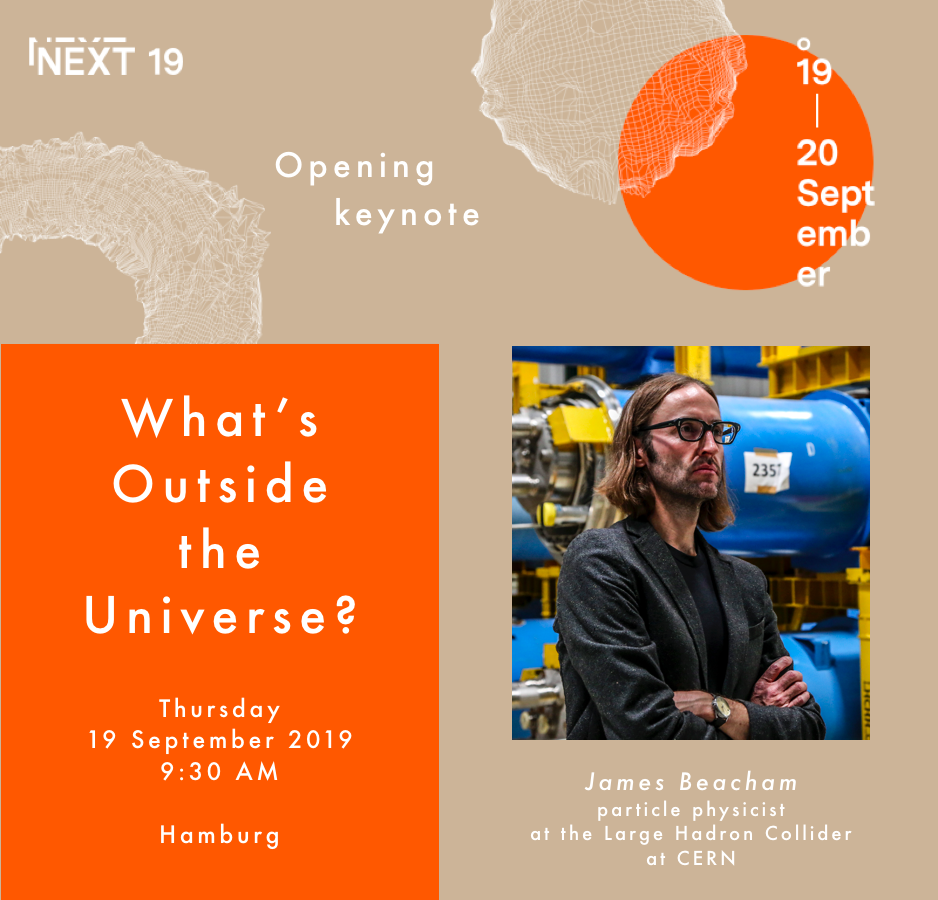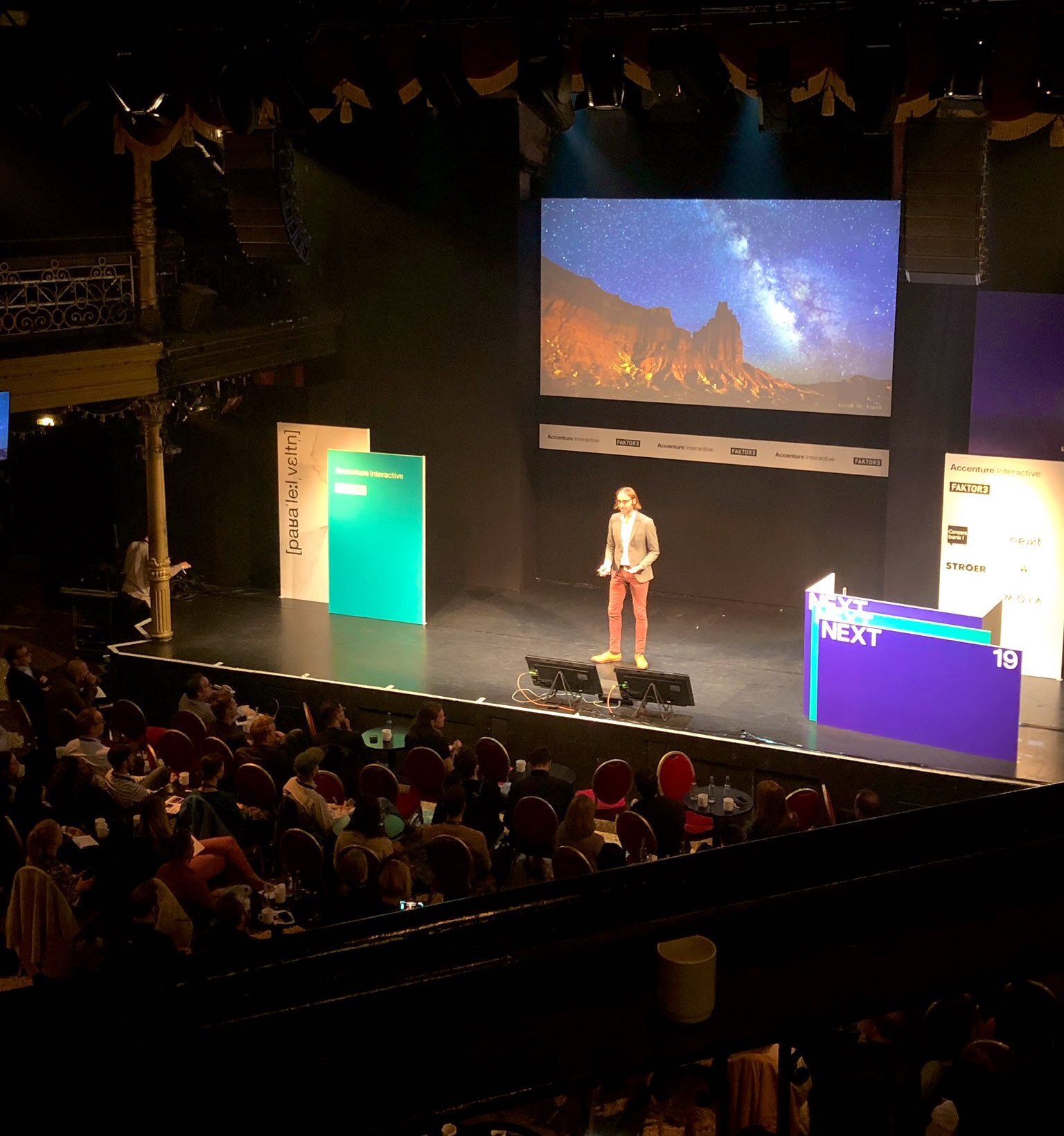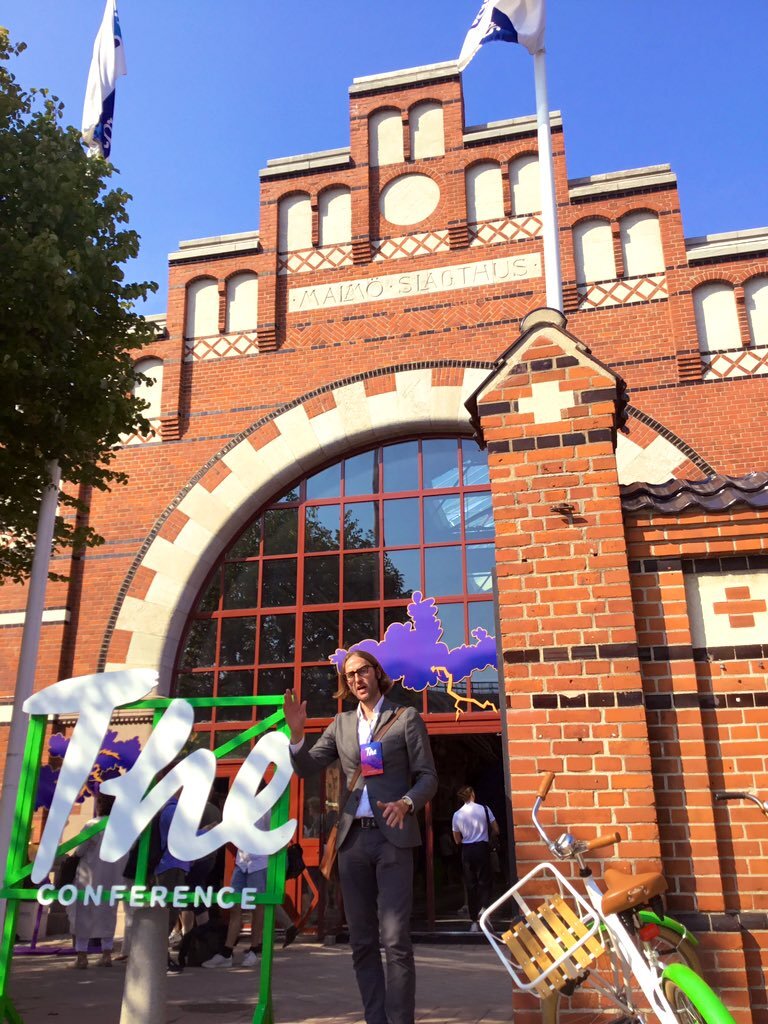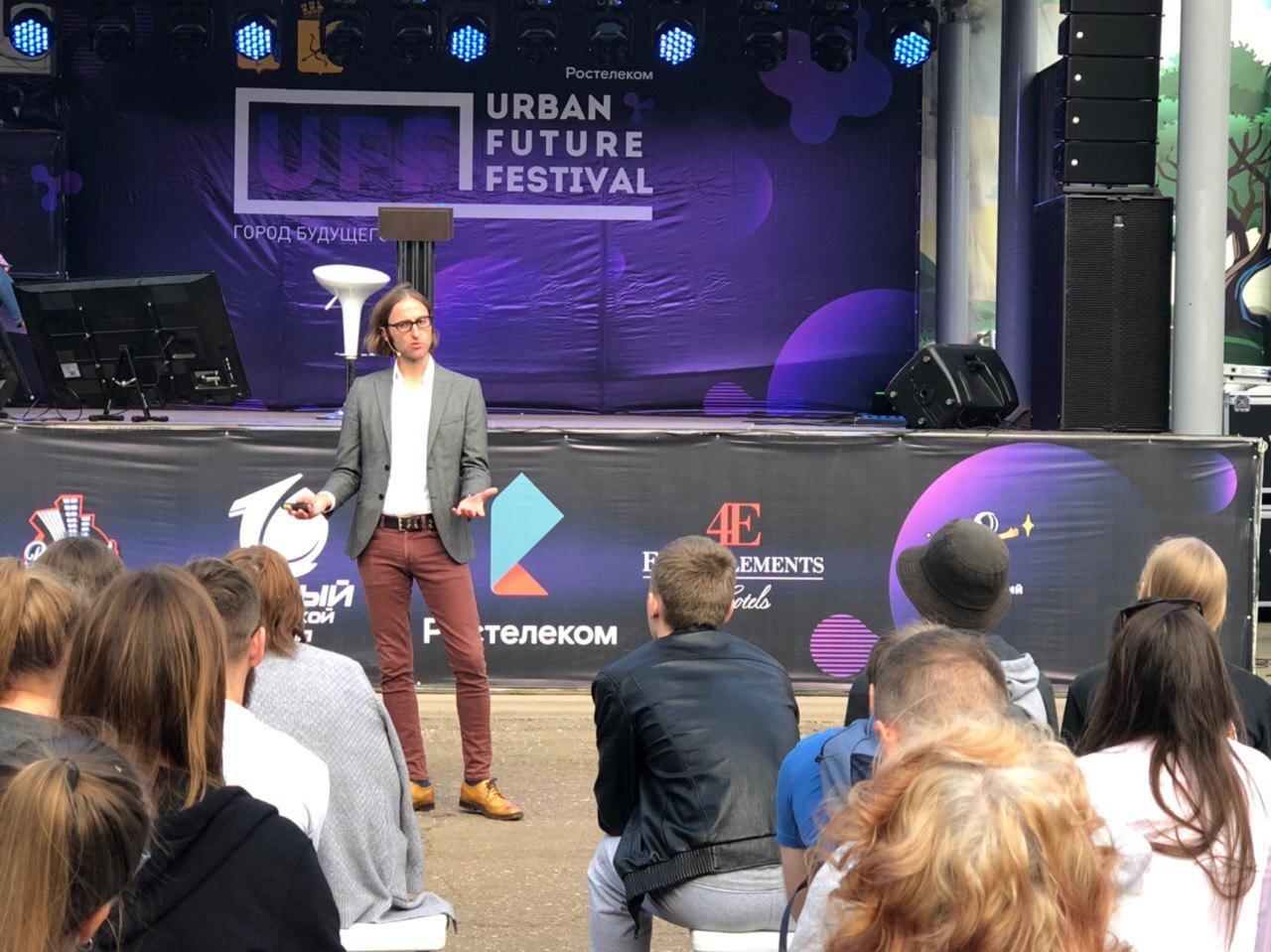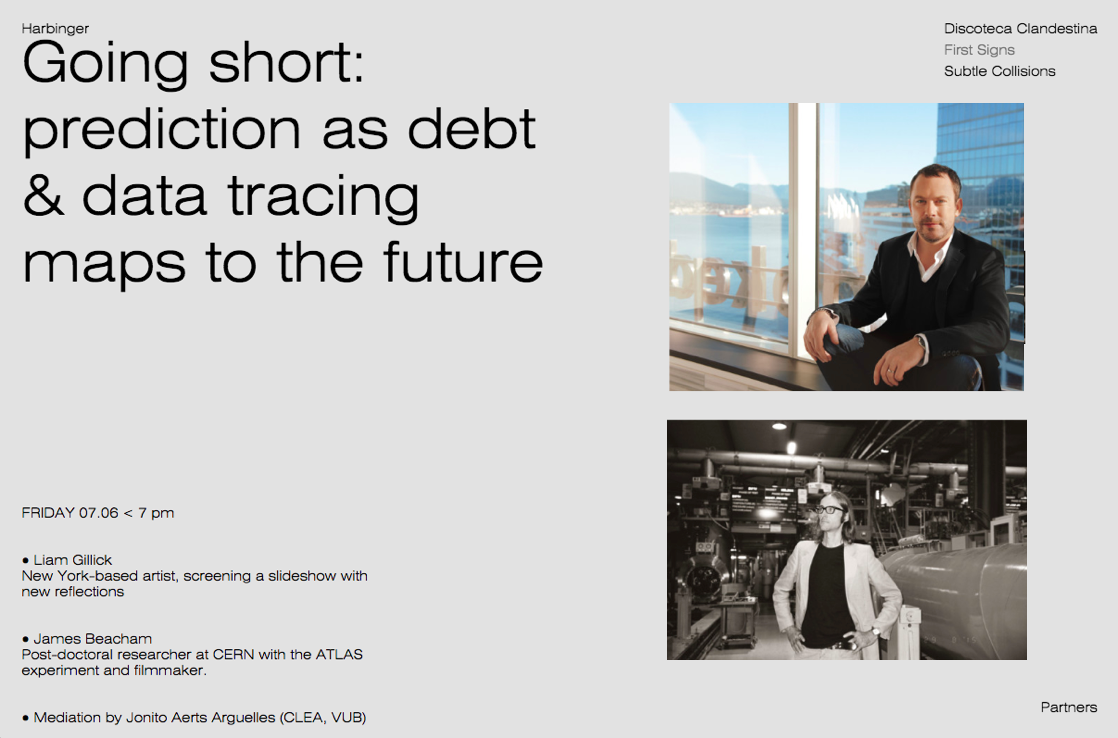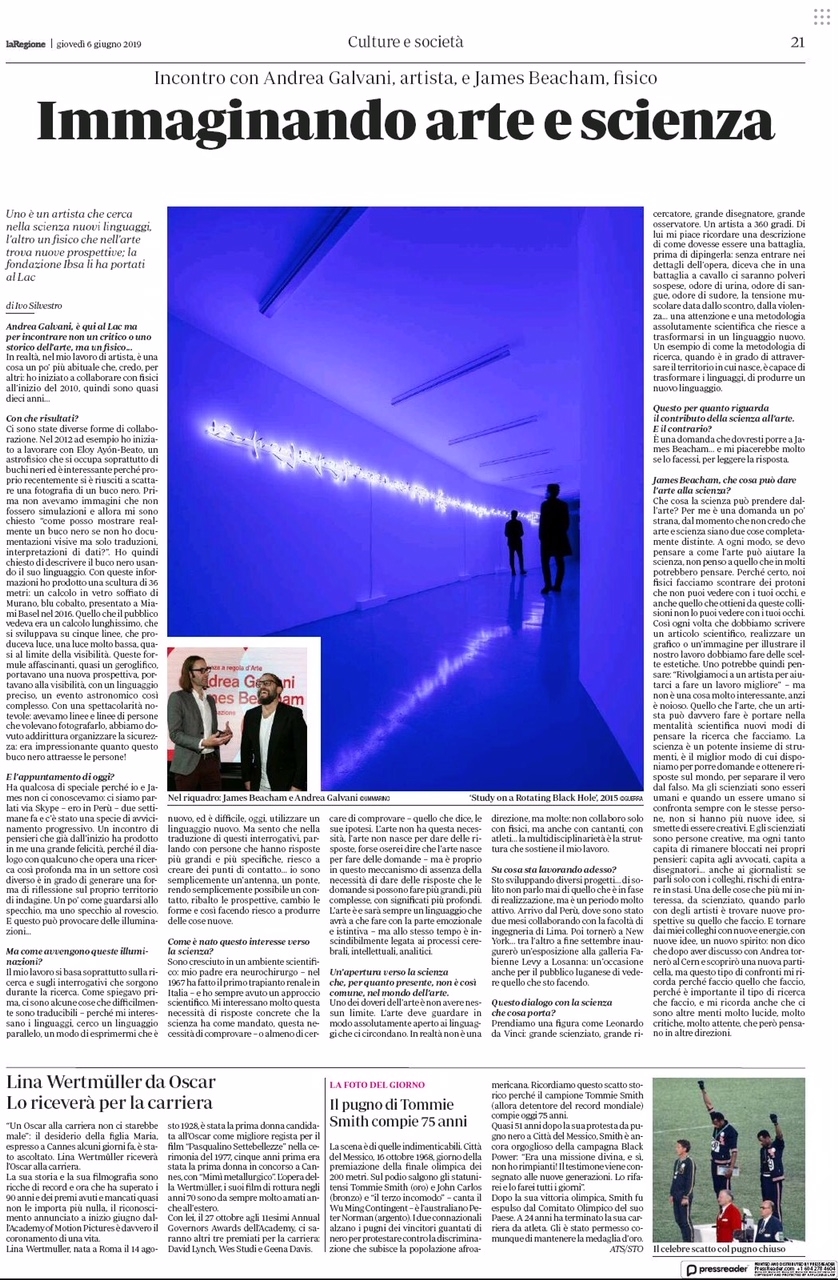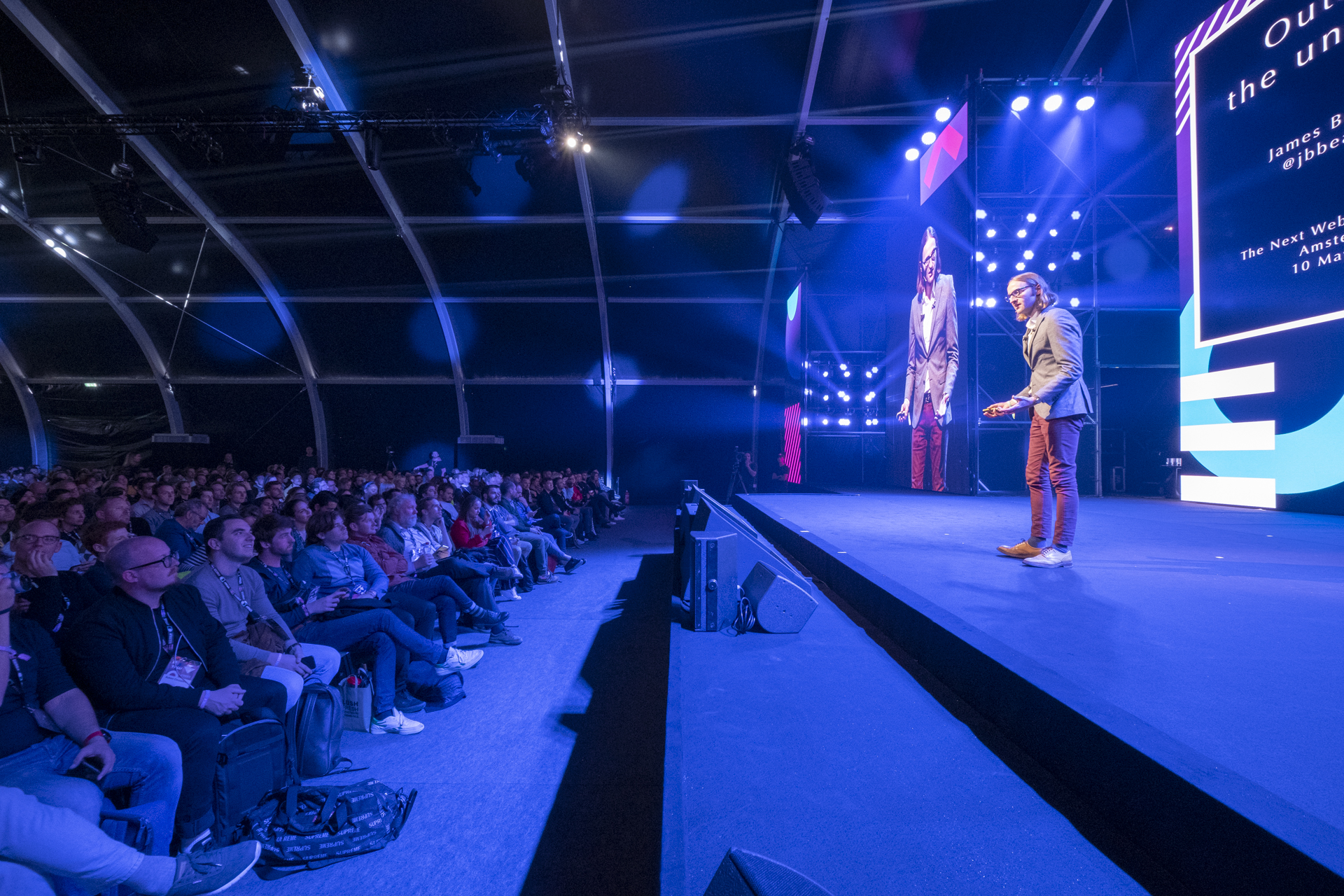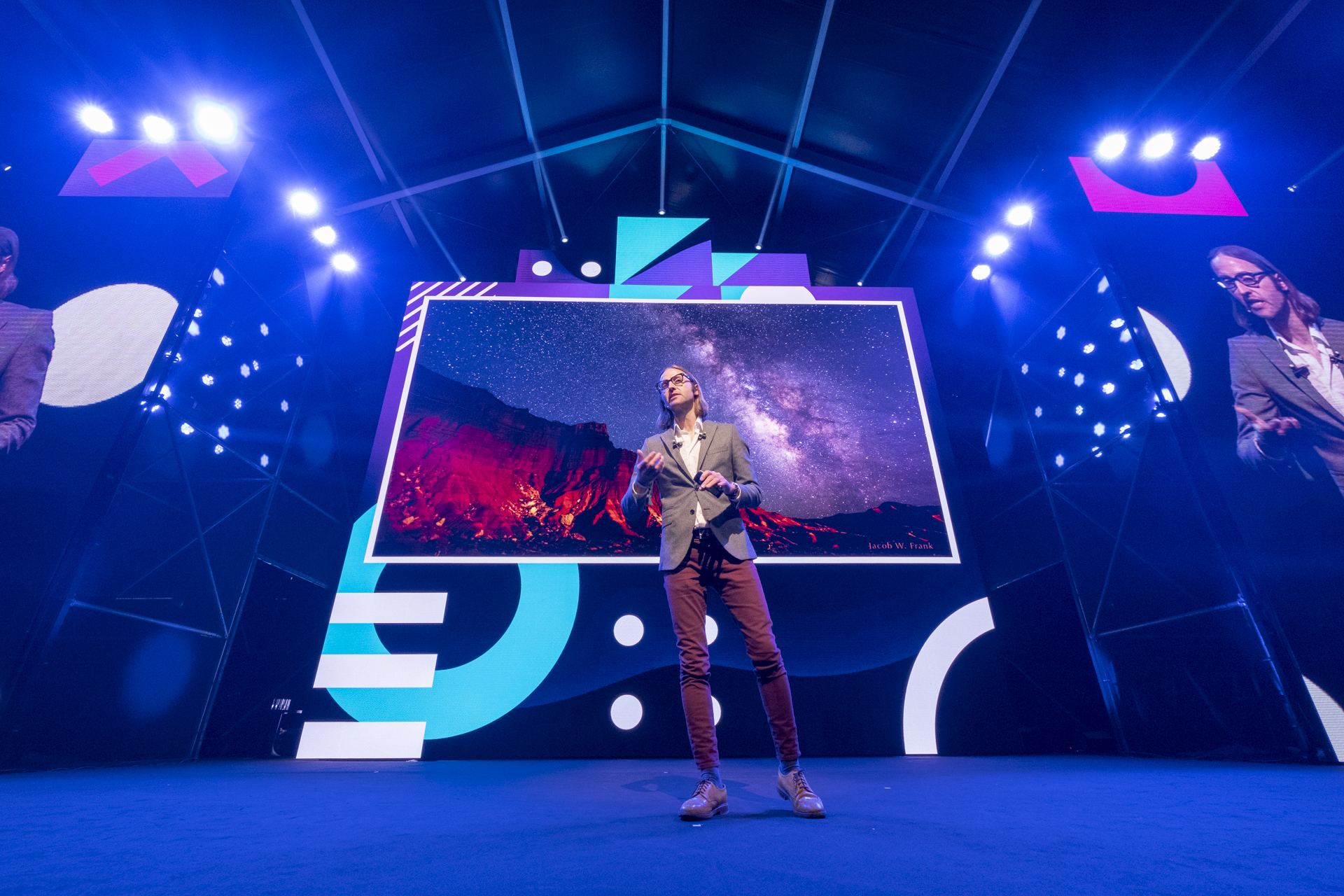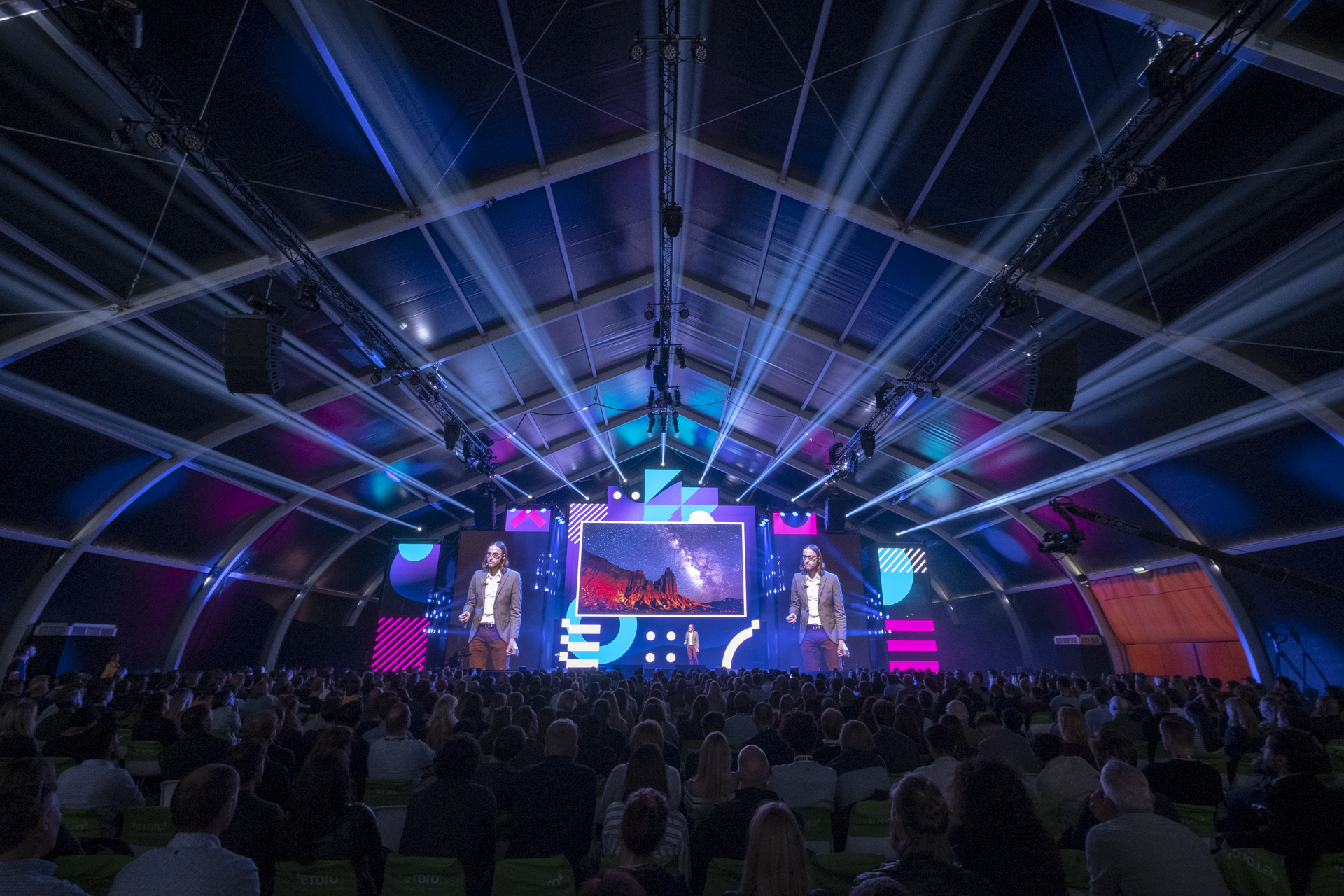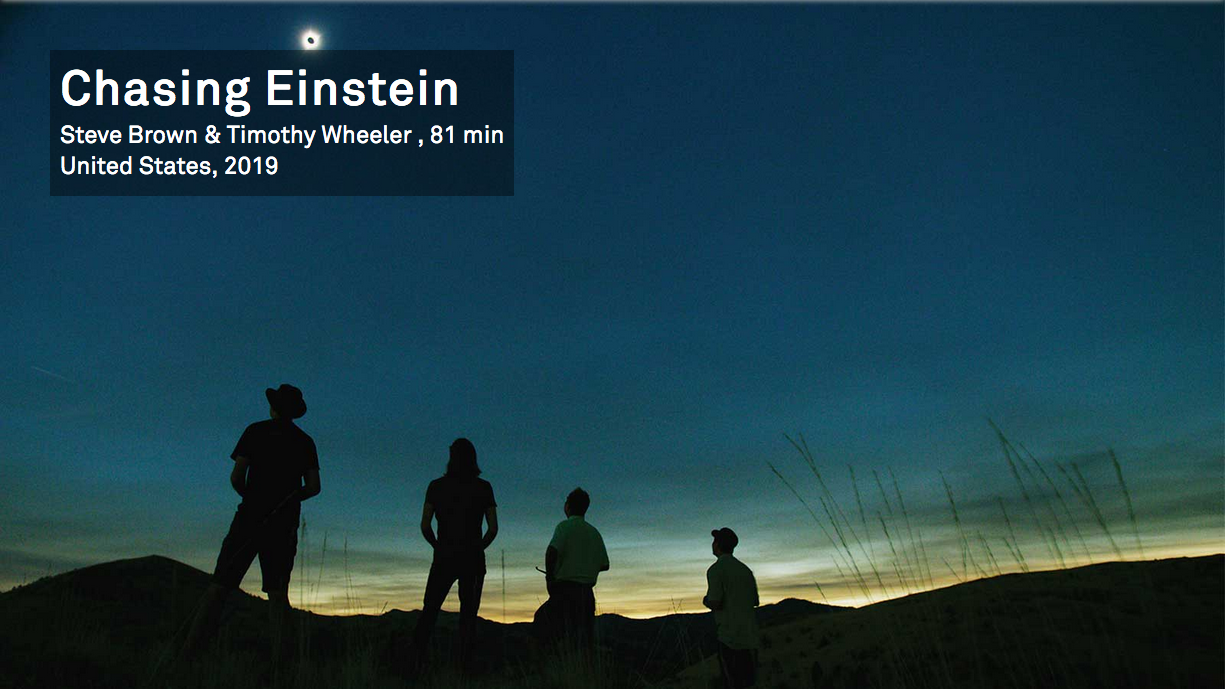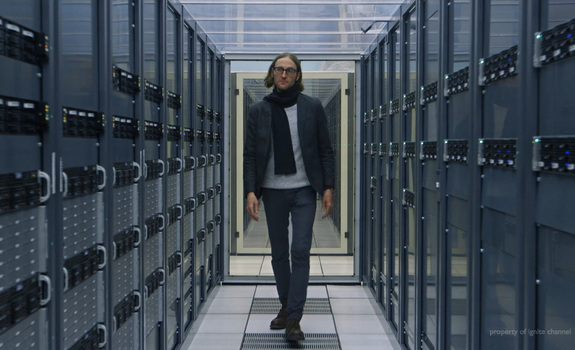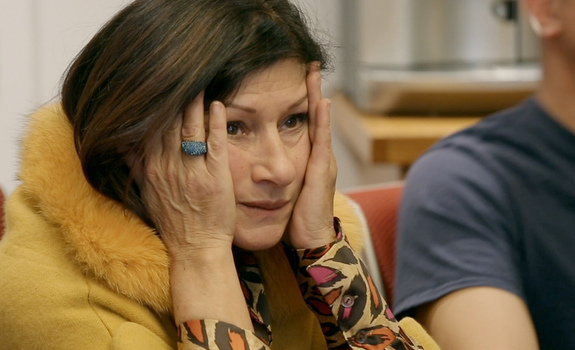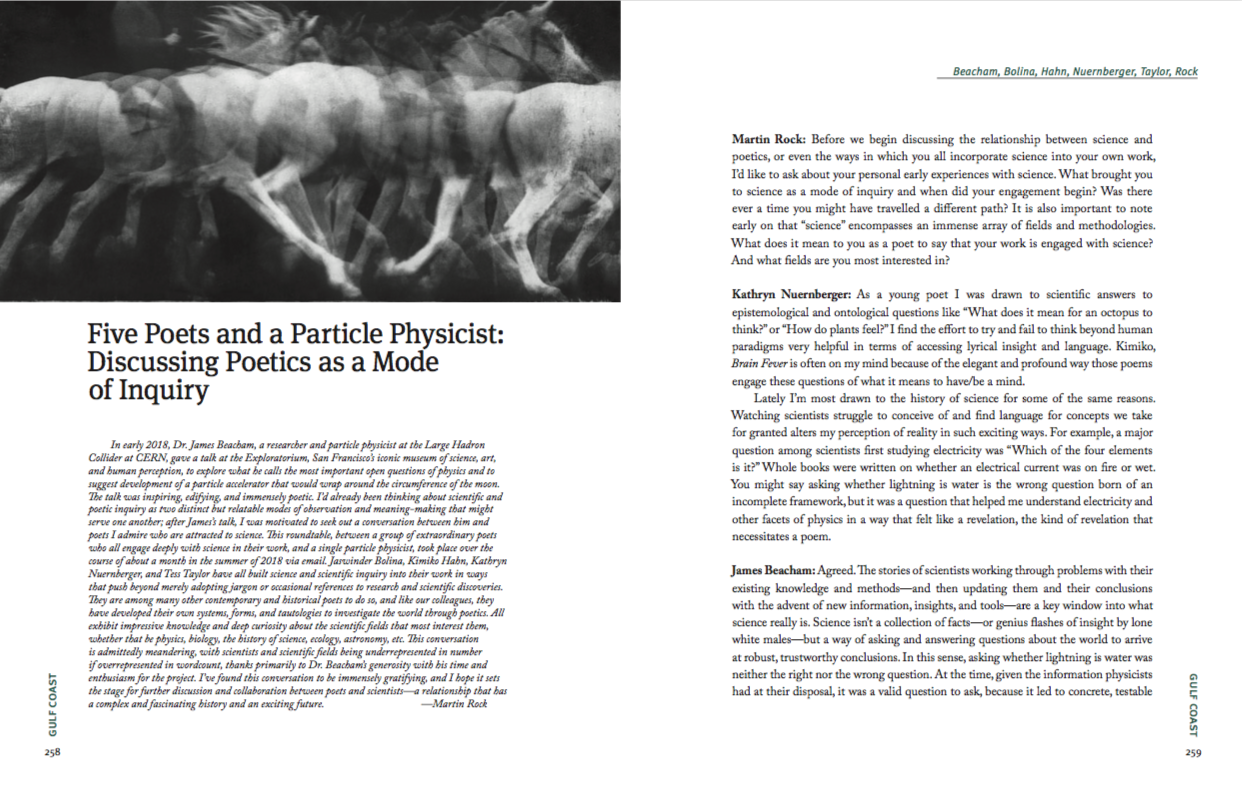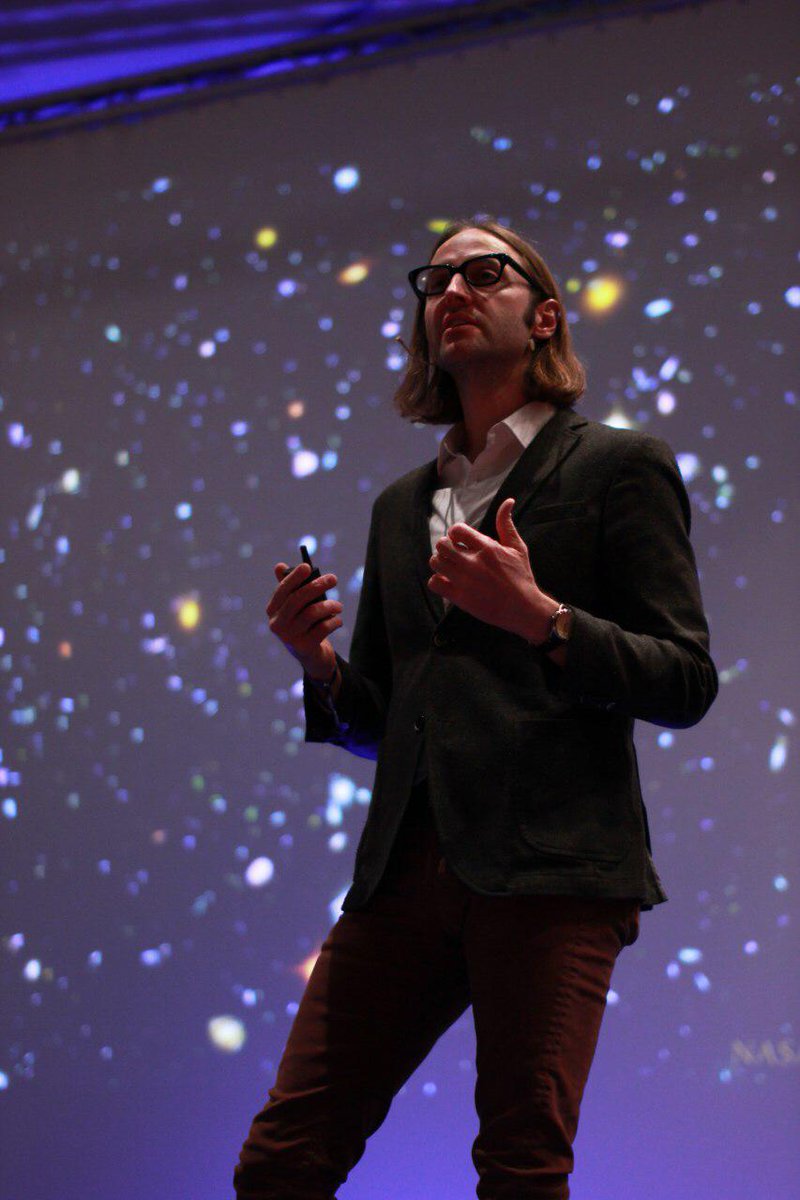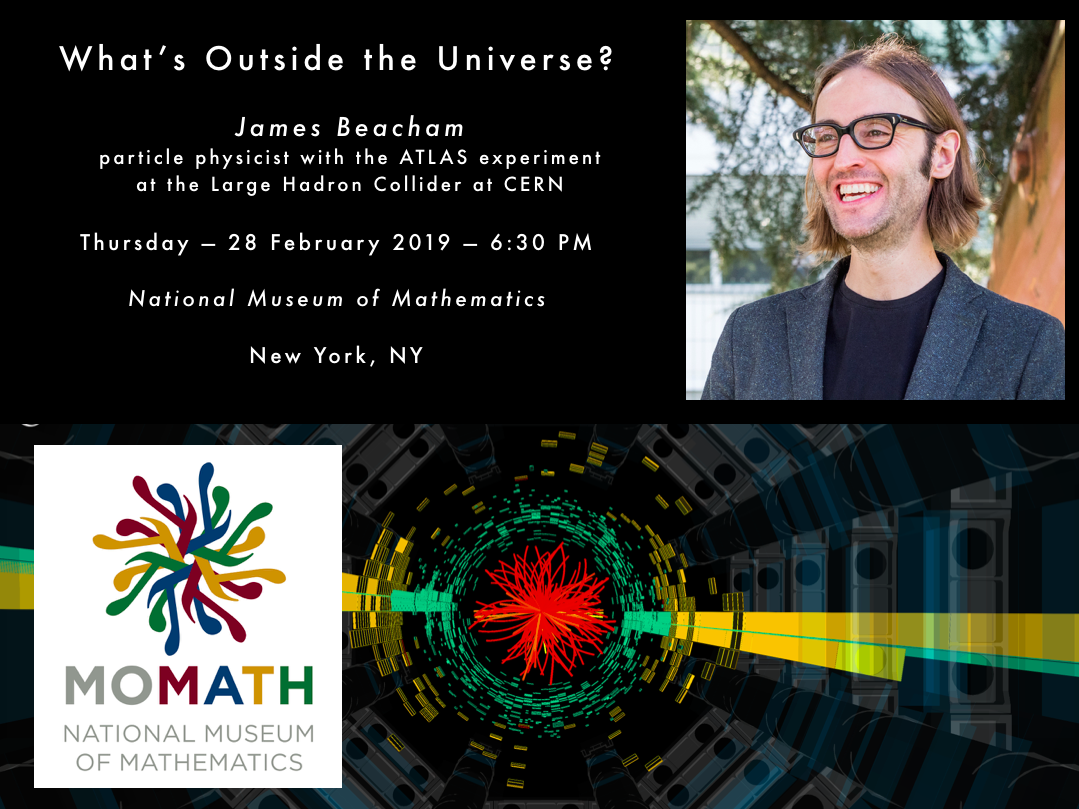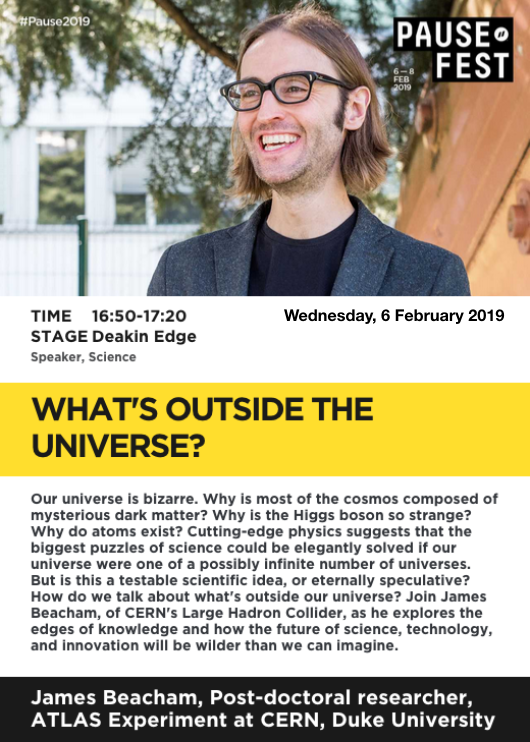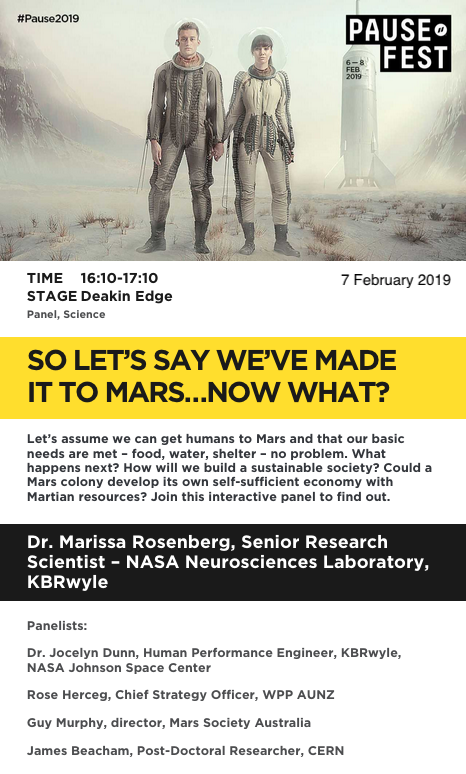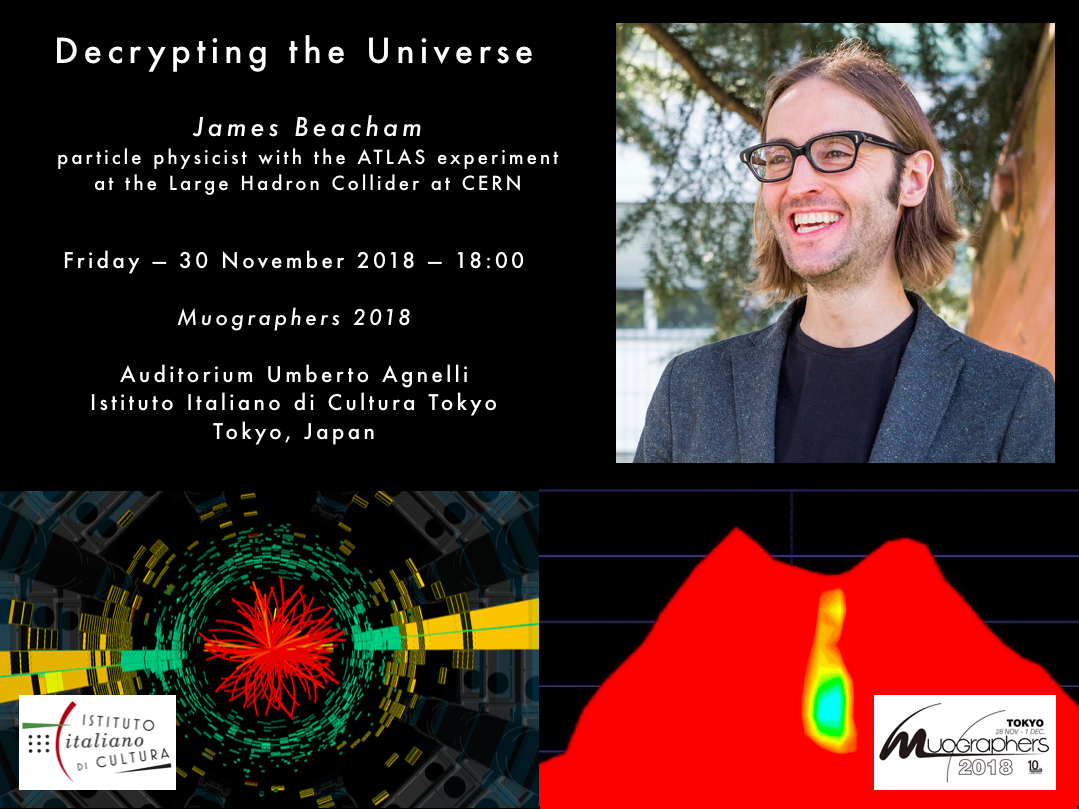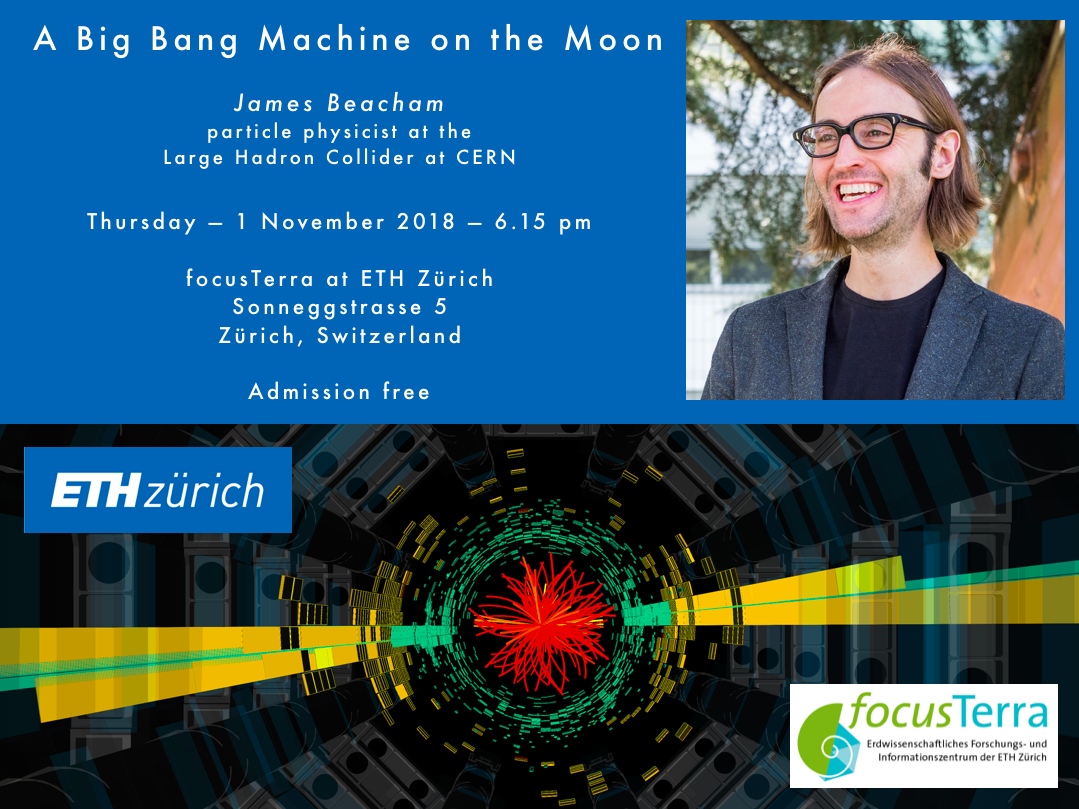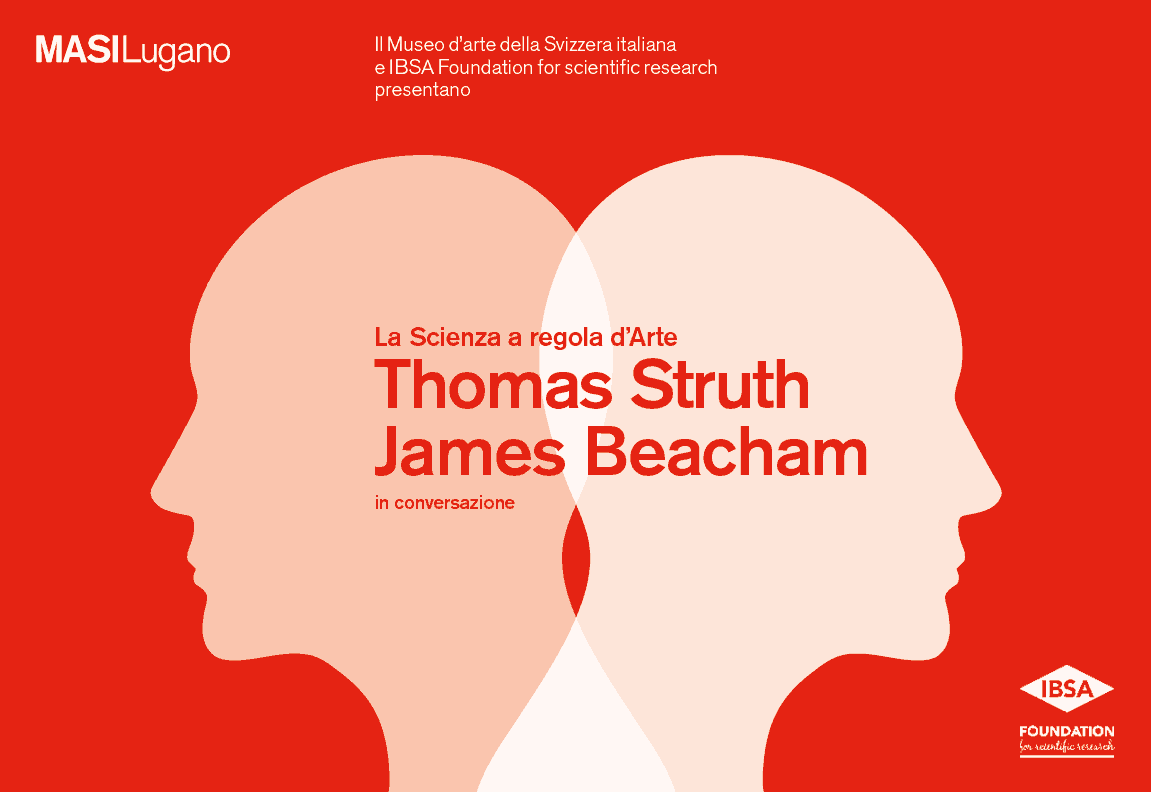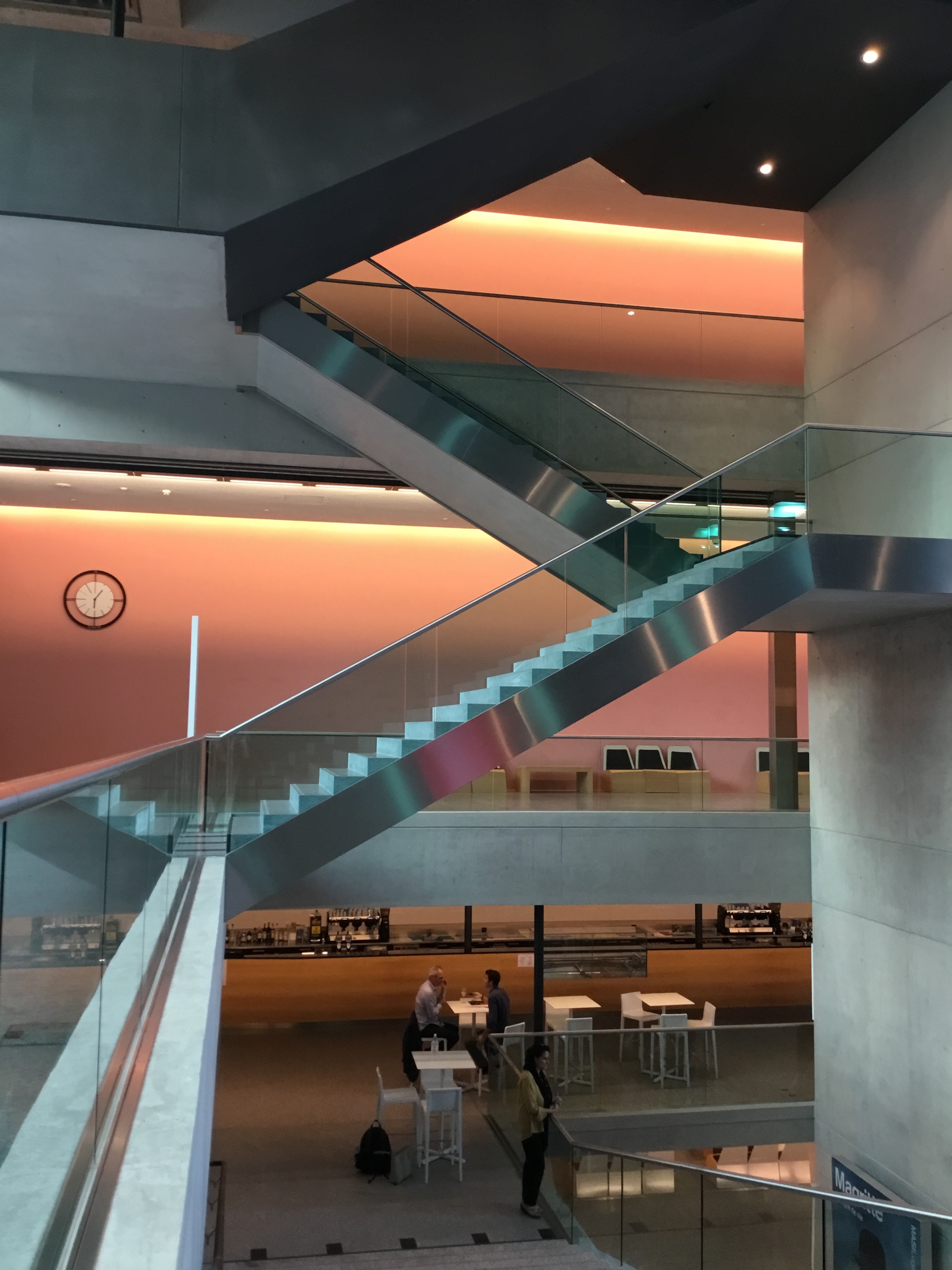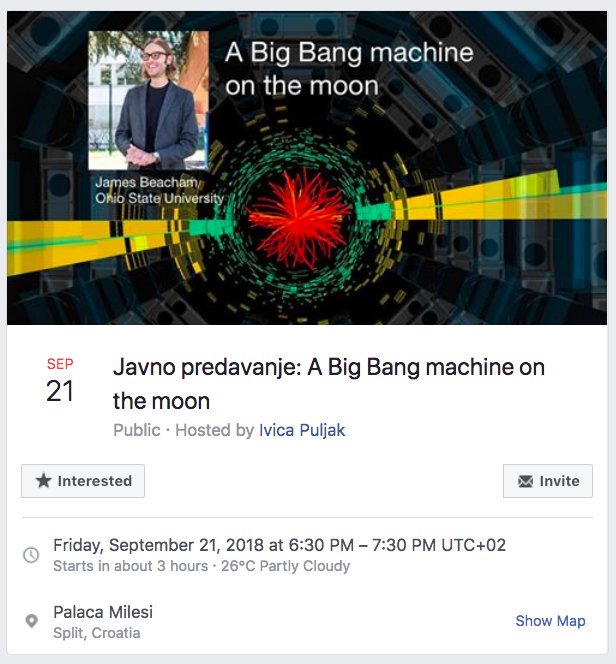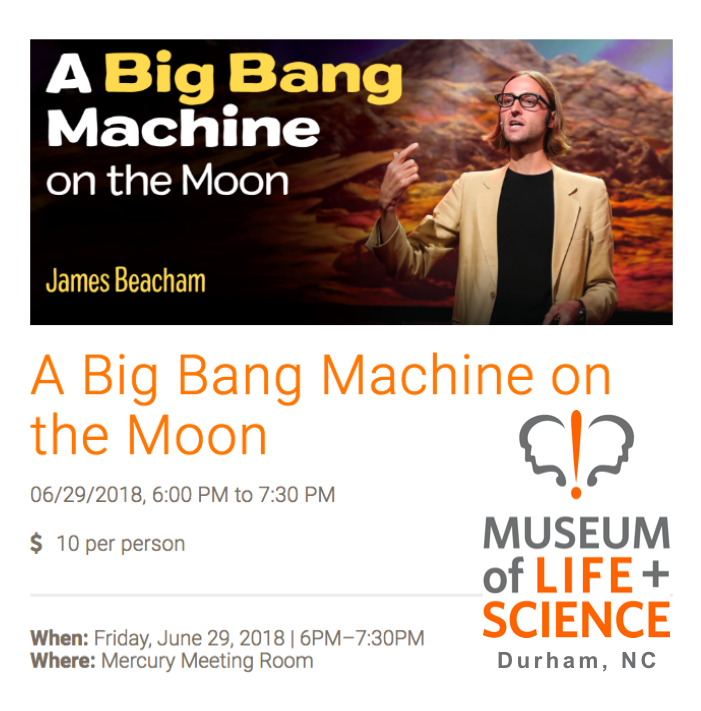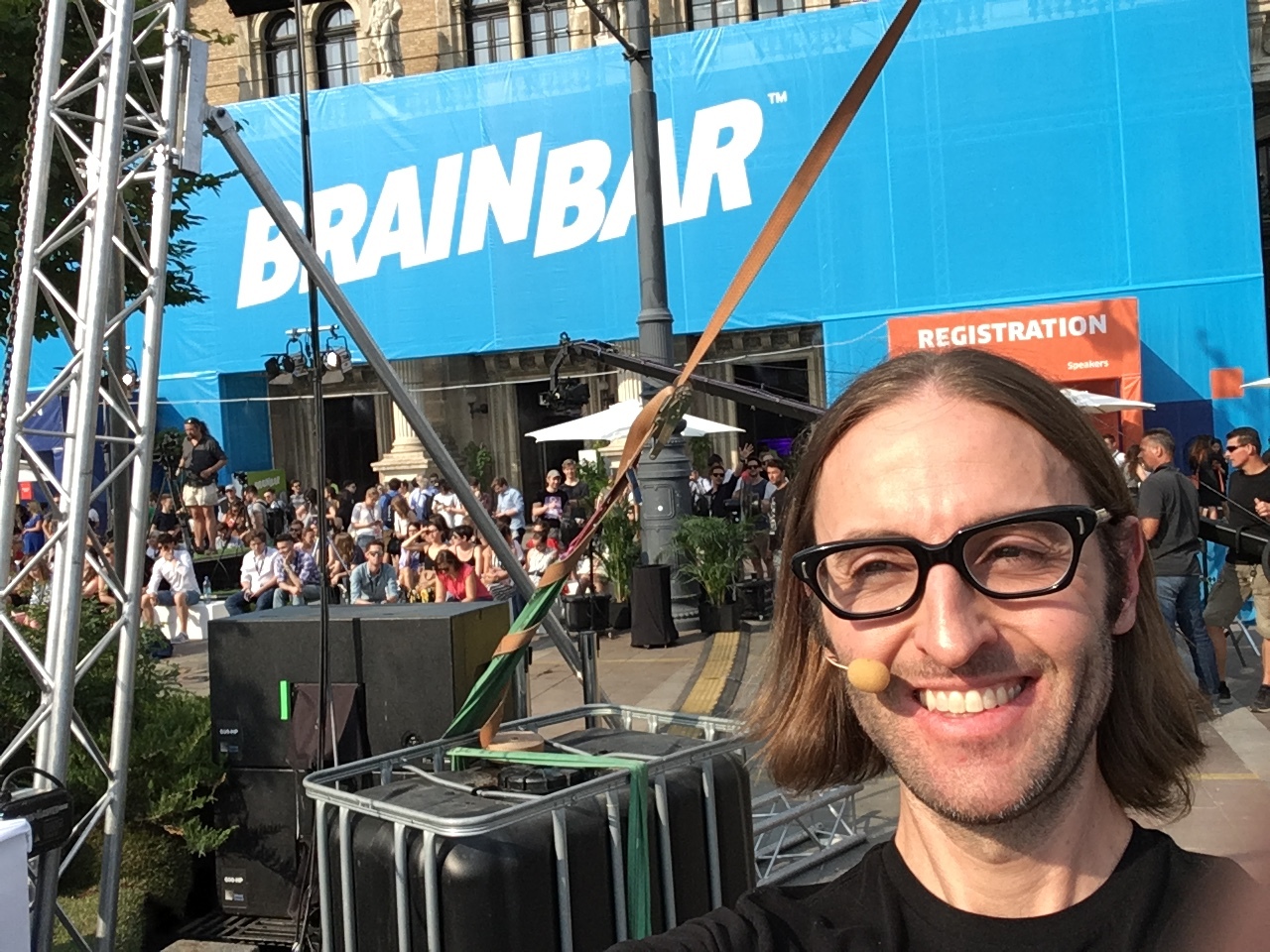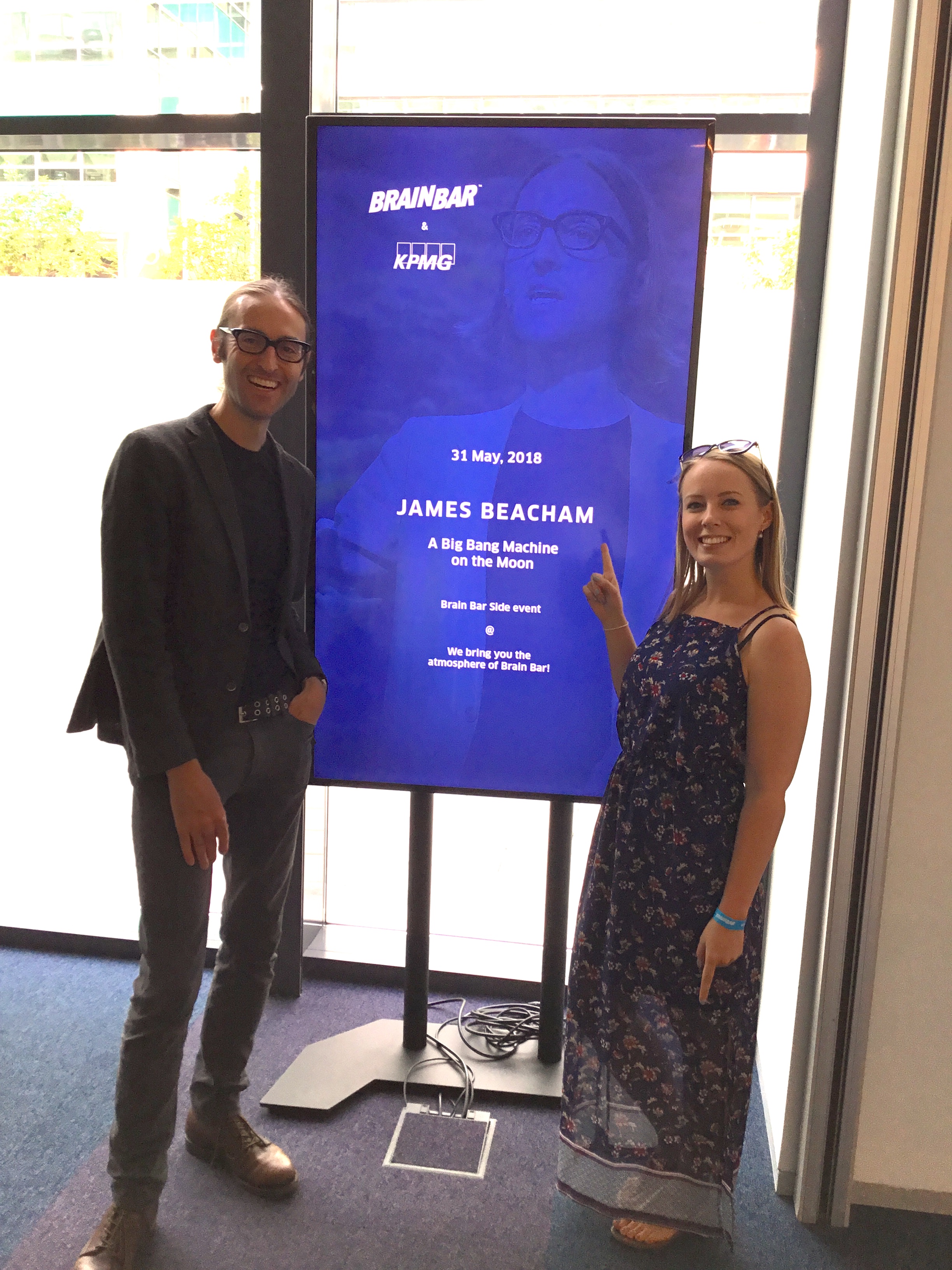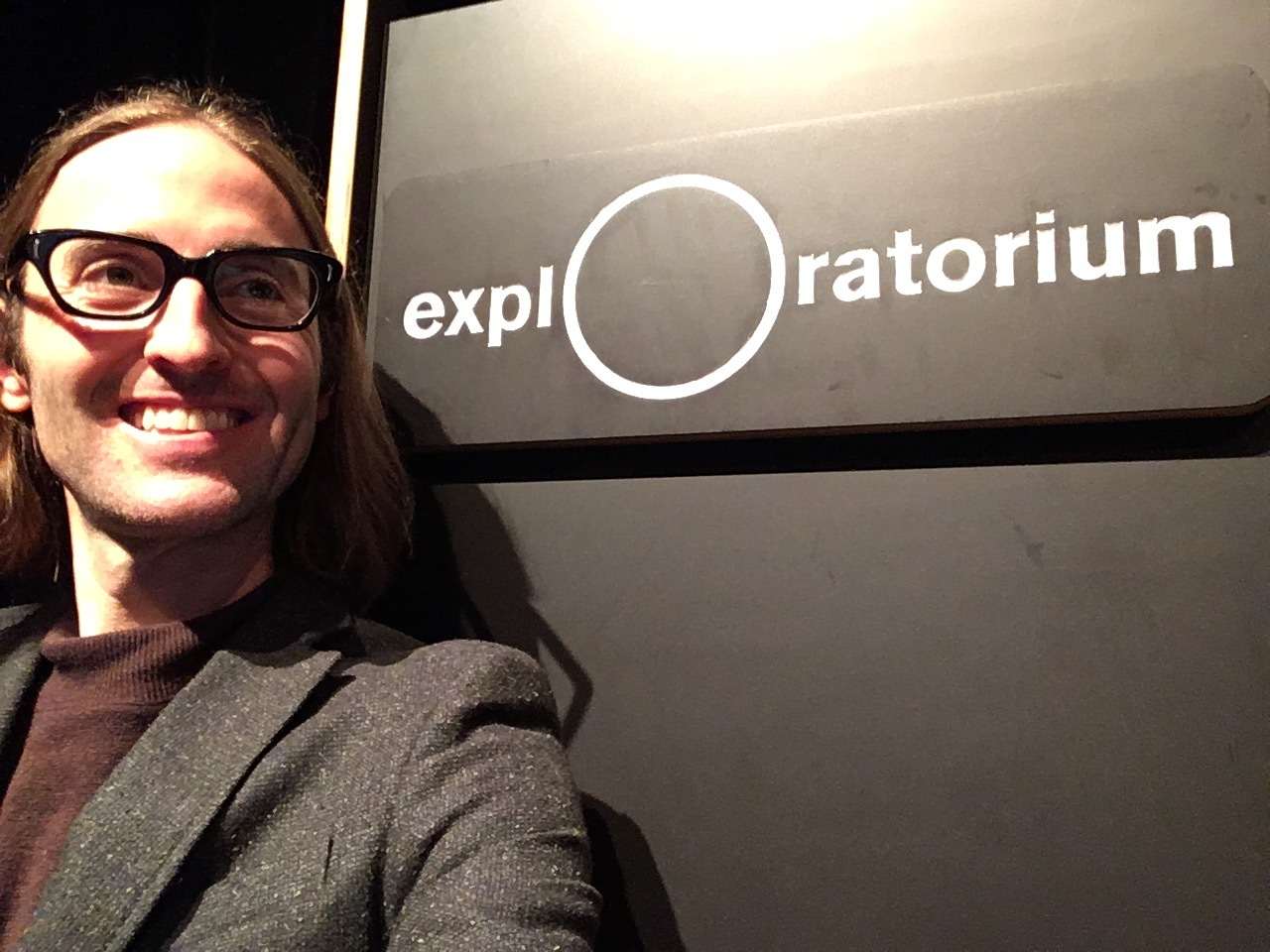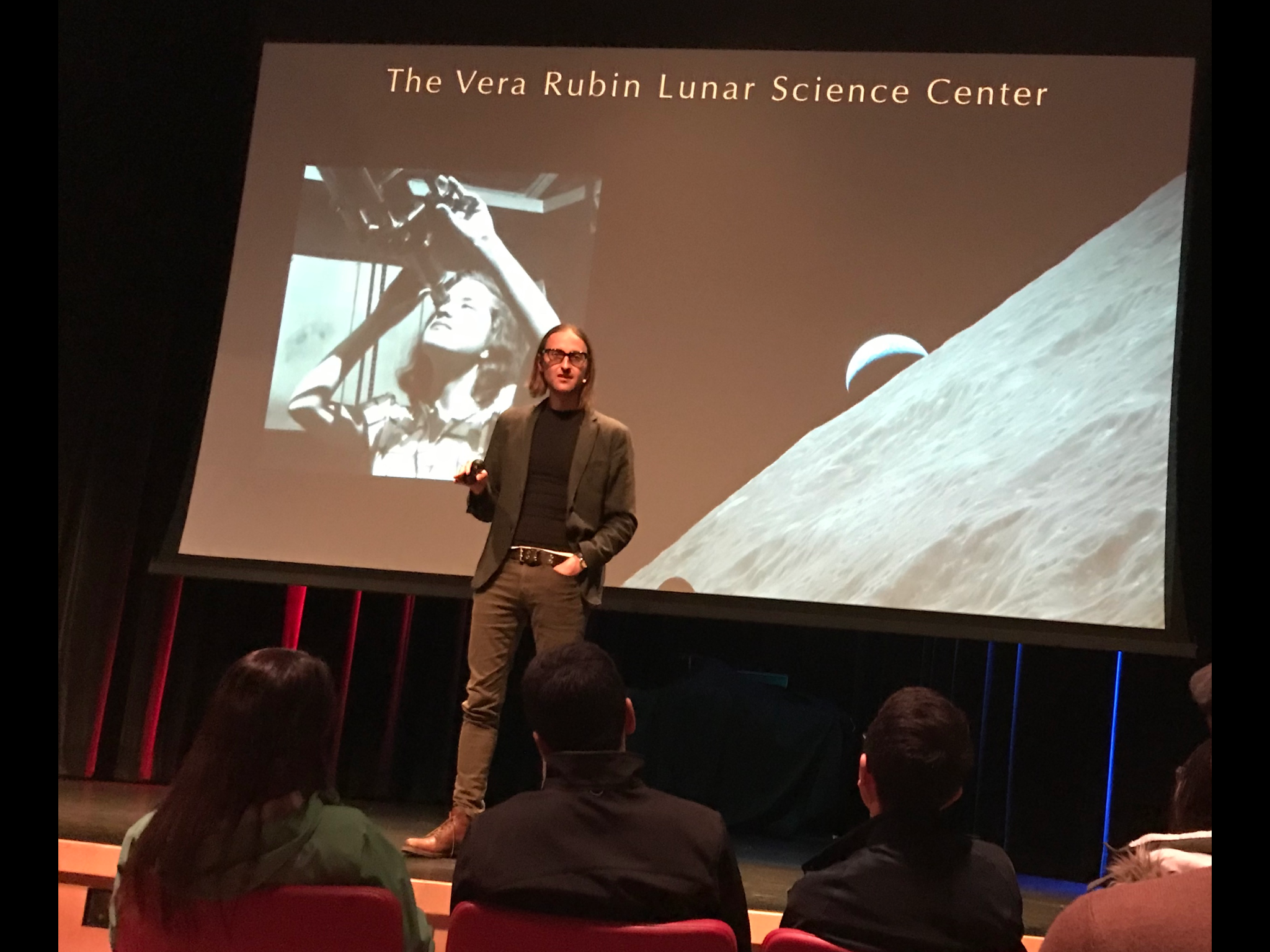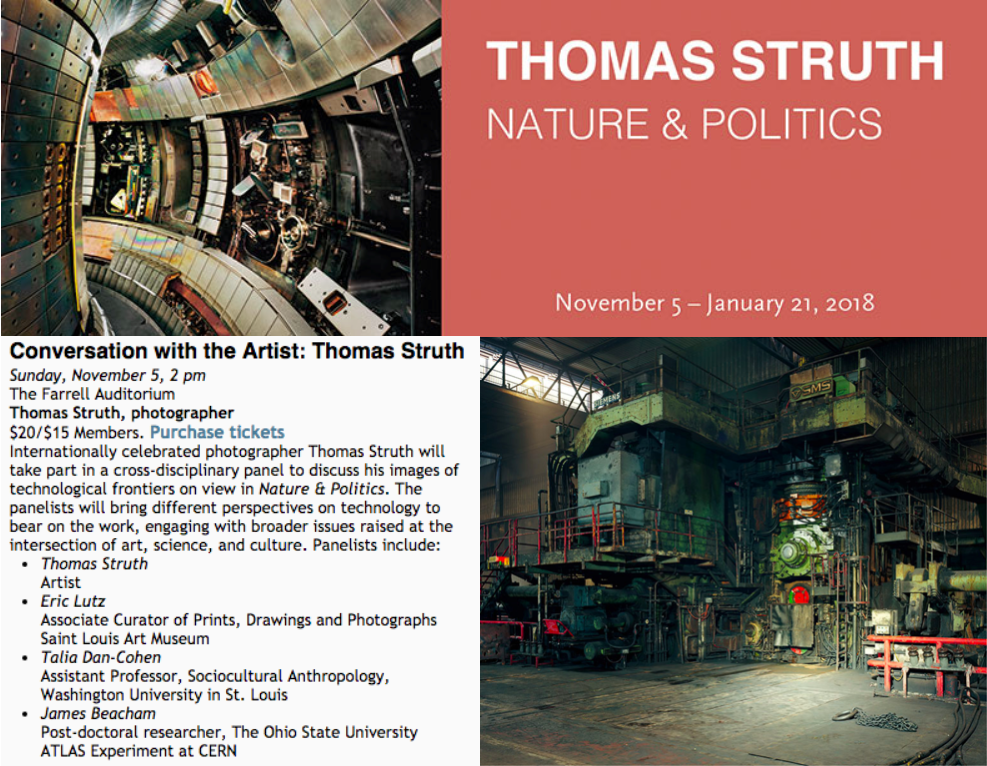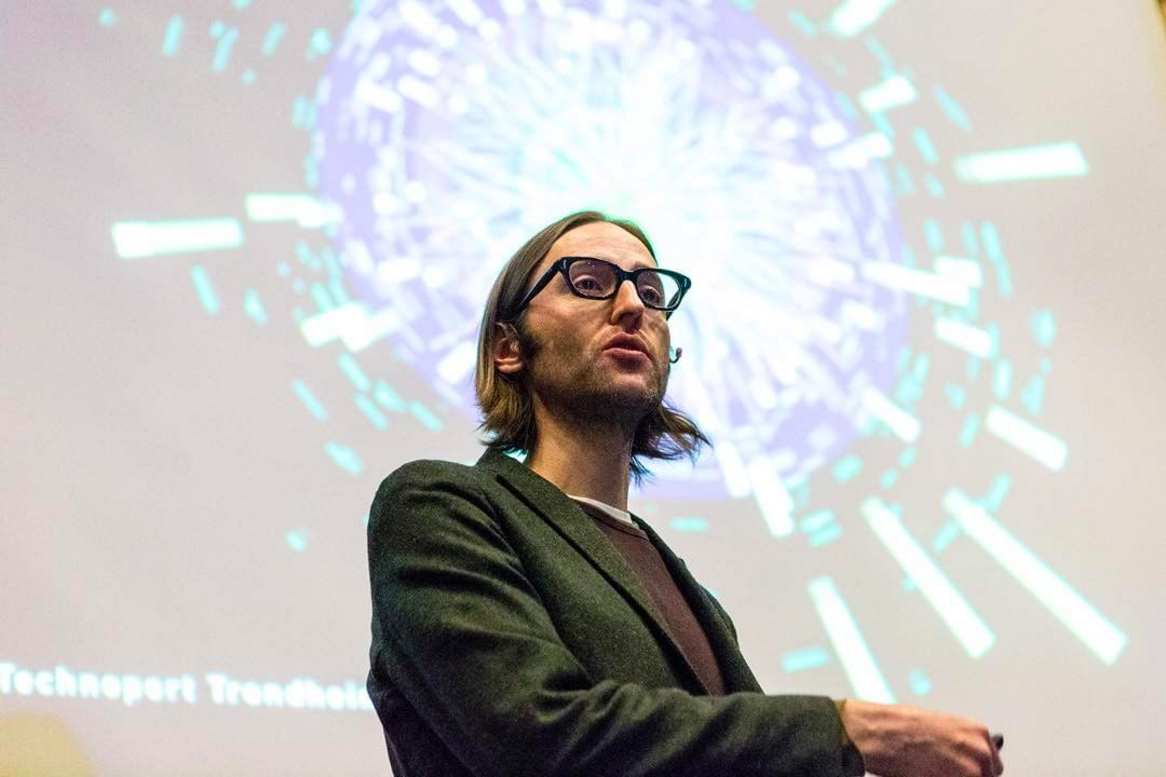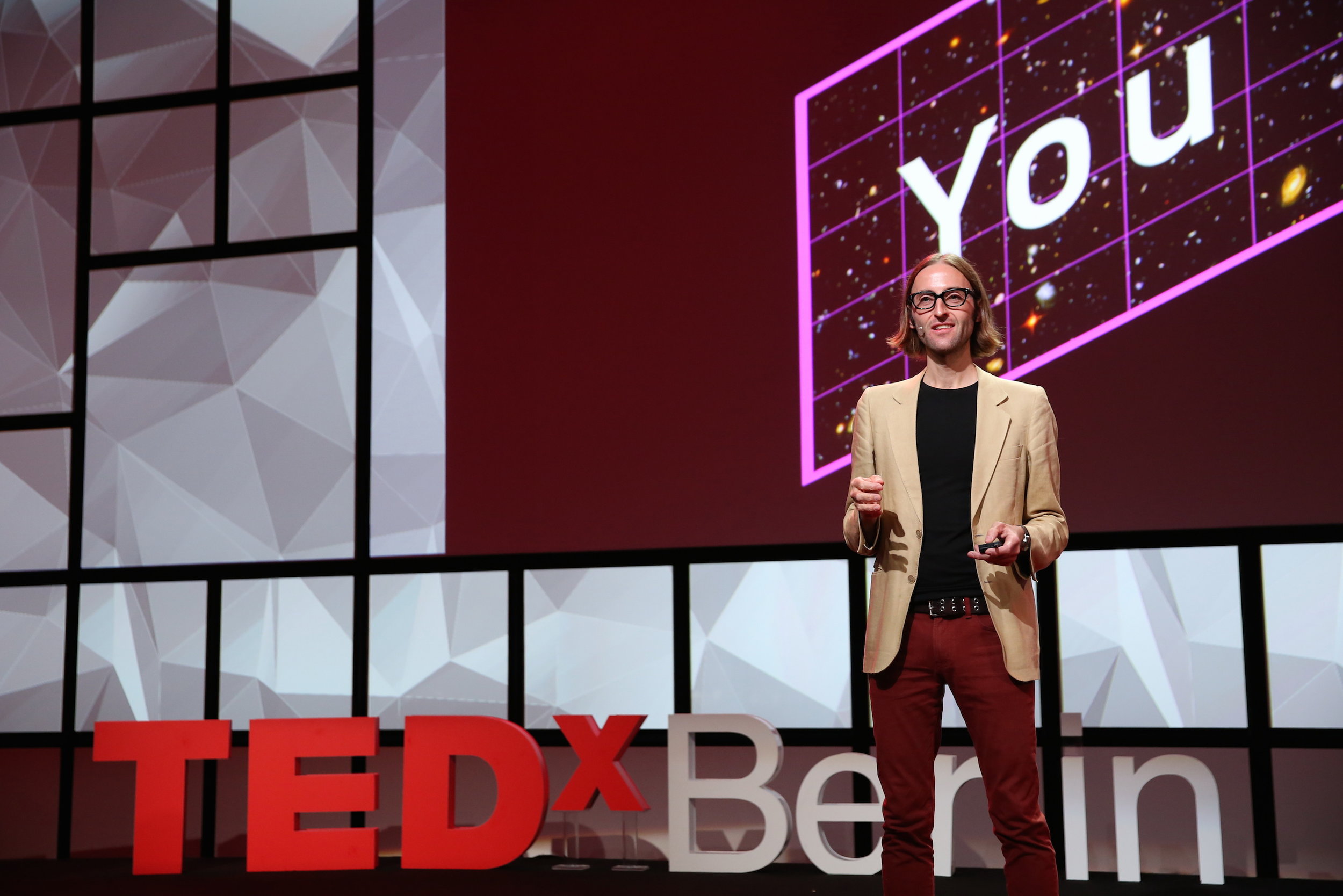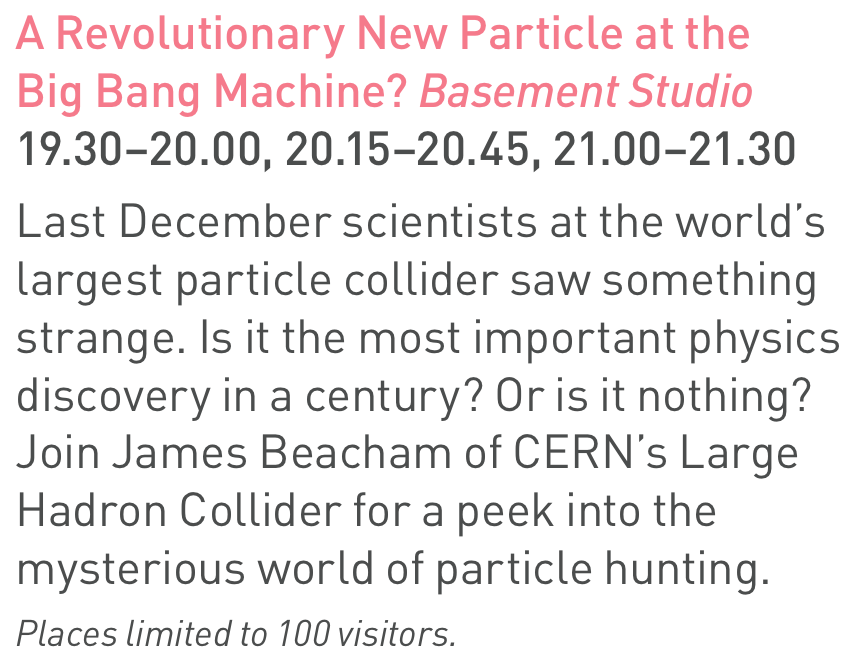Events, talks, and appearances
Bookings and engagements: info@jbbeacham.com
↓ Scroll down for upcoming and recent events ↓
Dr. James Beacham searches for answers to the biggest open questions of physics using the largest experiment ever, the Large Hadron Collider at CERN. He hunts for dark matter, gravitons, quantum black holes, and dark photons.
He is a co-recipient of the 2025 Breakthrough Prize in Fundamental Physics as a core member of the ATLAS experiment, one of the teams that discovered the Higgs boson in 2012.
In addition to his research, he is a frequent keynote speaker and communicator at the intersections of science, technology, pseudoscience, innovation, society, politics, and art at events and venues around the world (with a sizable following on TikTok), including the American Museum of Natural History, the Royal Institution, SXSW, the Raisina Dialogue, the Exploratorium, re:publica Berlin, Science City Kolkata, the Guggenheim Bilbao, and the BBC, among dozens of others, as well as private events for companies and corporations, including KPMG, Bain, Dept Agency, BCG, SUSI Partners, and many more.
His talk, “How we explore unanswered questions in physics”, was featured on TED.com and has been viewed more than 1.6 million times.
He makes regular appearances in media and film, including in television shows with the BBC, Discovery, ARTE, and National Geographic, among others; in live-streaming series (such as PBS Space Time); on podcasts (such as Vox’s Unexplainable); on radio shows (such as NPR’s Science Friday); and in documentaries (such as 2019’s Chasing Einstein). He and his research have been featured in The New York Times, WIRED, Gizmodo, Popular Mechanics, Pitchfork, NME, Ars Technica, Engadget, Motherboard, Brooklyn Vegan, Science News, India Today, Mic News, Discovery News, Futurism, Corriere del Trentino, and Symmetry Magazine, among others.
Beacham is also an experimental filmmaker and visual artist and exhibits internationally. He mounts and exhibits his own projects and frequently collaborates with other artists. In 2015 he launched Ex/Noise/CERN, a project exploring the connections between particle physics and experimental music, film, and art, featuring the band Deerhoof. He is regularly invited to have public conversations with other artists at museums and galleries and has been featured in art publications such as BOMB Magazine.
Photo (c) ramp.space / Roman Kuhn
I created Ex/Noise/CERN to examine the similarities between musical / artistic exploration and scientific exploration. It's about site-specific noise-ish improvisation. To begin, we put Deerhoof inside SM18 to see what would happen. More events are coming. More information here.
Upcoming appearances
A few coming up. Stay tuned.
recent appearances
27 June 2025 — .NeuroRestore Summer Symposium, Lausanne, Switzerland — Keynote address
10 May 2025 — Health & Biotechnology Student Congress, Abdullah Gül University, Kayseri, Turkey — Keynote address
21 March 2025 — Vivaldi Forum, Serbia — Keynote address
10 February 2025 — EPFL School of Life Sciences Faculty Retreat, Jongny, Switzerland — Keynote address
6 December 2024 — arte science series, 42: La réponse à presque tout, episode about dark matter: “What holds the universe together?”, featuring me, in French and German
22 November 2024 — Sol Symposium, San Francisco: “What is reality? Possible and impossible in the physics of UAP”
24 October 2024 — Make Science Pop! online event about science communication
14 September 2024 — Asian Paints Alchemy 2024 Virtual Conclave keynote address: “Black Holes and Blue Skies”
8 September 2024 — Crossing Faiths podcast, with John Pinna, discussing science, conspiracy theories around science, and human curiosity
24 July 2024 — Vox’s Unexplainable podcast: Do we live inside an enormous black hole?
3 April 2024 — The Conduit Club, keynote address — Oslo
20-23 February 2024 — Raisina Dialogue: keynote address, session with Raisina Young Fellows, and panel — Delhi
7 January 2024 — arte science series, 42: La réponse à presque tout, episode: “Do we live in a multiverse?”, featuring me
19 December 2023 — Science City, keynote address — Kolkata
5 October 2023 — Eton College Astronomical Society, keynote address — Windsor, U.K.
2 June 2023 — Thomas Struth vernissage, Galerie Max Hetzler — London
15 March 2023 — WORLD.MINDS, keynote address — Zürich
23 February 2023 — Innovation Explorer forum, keynote address — Sofia, Bulgaria
17 November 2022 — Global Innovation Forum, keynote address — London
21 September 2022 — Figure 1A art/science competition vernissage: keynote address — Lausanne, Switzerland
5 July 2022 — Ground Zero radio show
25 June 2022 — Conversation with artist Ilona Ruegg — Kunsthalle Arbon — Arbon, Switzerland
23 June 2022 — Renaissance festival: I Am Mostly Empty Space — Geneva
9 June 2022 — re:publica — Berlin
26 May 2022 — WORLD.MINDS — Belgrade — Opening keynote
28 October 2021 — Royal Institution — London — The Other End of a Black Hole (hour-long version)
1 October 2021 — TNW 2021 — Amsterdam — Closing keynote
27 November 2020 — MUSE: Museo delle Scienze di Trento — Headlining talk in Trento, Italy
5 November 2020 — WestVisions — Closing keynote at virtual event
3 October 2020 — Into the Parabnormal — Radio show discussing CERN, the LHC, dark matter, the Higgs boson, black holes, the Big Bang, and the fate of the universe.
28 July 2020 — Theories of Everything at PBS Space Time — First in a series of two livestreams about the possibility of a Theory of Everything in physics, featuring me, Lisa Randall, Stephon Alexander, Max Tegmark, Matt O’Dowd, Brian Keating, Lee Smolin, Sabine Hossenfelder, and Eric R. Weinstein.
1 July 2020 — Pakhuis de Zwijger — Live-streamed conversation about “Creative Collaboration: Innovation & Design Thinking. How do we stay creatively connected during and post pandemic?”
22 June 2020 — Dr. Brian Keating’s YouTube channel — Live-streamed discussion of the future of basic science, especially in the context of CERN’s proposal for a 100-km Future Circular Collider
29 April 2020 — Indian Genes Podcast — Featured on a two-part episode of a podcast about science & technology
14 February 2020 — Milan, Italy — Museo Scienza — Open Night 2020 — Tickets
13 February 2020 — Utrecht, The Netherlands — Tweakers: Developers Summit 2020
18 January 2020 — Bilbao, Spain — Guggenheim Bilbao — Special performance of my talk Decrypting the Universe for the finissage of the Thomas Struth exhibition
7 December 2019 — Geneva, Switzerland — Cinéma Spoutnik — Invited “carte blanche” film event; I chose Lynn Hershman Leeson’s Teknolust and gave a presentation before the film
20-21 November 2019 — Basel, Switzerland — Swiss Innovation Forum — Closing keynote
7 November 2019 — Nijmegen, The Netherlands — InScience Film Festival — Chasing Einstein screening and panel
30 October 2019 — Bangkok, Thailand — Digital Thailand Big Bang — Keynote
28 October 2019 — Chicago, Illinois — Dare Mighty Things — Keynote
16-20 October 2019 — Frankfurt, Germany — Frankfurt Book Fair — Panel and keynote
// Opening keynote — Hamburg, Germany — NEXT Conference — 19 September 2019
I was overjoyed to give the opening keynote for the NEXT Conference in Hamburg on 19 September 2019, a variation on my talk, “What’s outside the universe?” in the beautiful Tivoli Theatre on the Reeperbahn.
The main topic of NEXT 2019 was Parallelwelten, or Parallel Worlds, so my talk was an ideal though bold choice for the opening keynote. The NEXT Conference was concurrent (and partners) with the Reeperbahn Festival, so it was a packed theater and the response was great, both in person and online.
Later in the day I did a session called, “Ask me anything about the universe”, which also went on much longer than had been planned.
Hamburg is a wonderful city, NEXT is a conference filled with curious people, and it was a pleasure to kick off the event in a cosmic way.
// Talk and interactive session — Frankfurt, Germany — me Convention — 13 September 2019
I was invited to appear at the me Convention in Frankfurt, on 13 September 2019, on a relatively last-minute basis, so I opted to give a rare performance of my talk about science vs. pseudoscience, this time titled, “Why do people believe ridiculous things?”.
Frankfurt, starting now! We're at @meconvention where I'm about to explore why people believe ridiculous things! pic.twitter.com/R0WdqRwy7j
— James Beacham (@jbbeacham) September 13, 2019
Later in the day I held an “interactive session” titled, “How to travel through time”, during which we did indeed travel through time at a rate of one second per second. The session was scheduled for about an hour and we chatted for two hours because no one wanted to leave.
// Talk — Malmö, Sweden — The Conference — 28 August 2019
I gave the closing keynote at The Conference in Malmö, Sweden, on 28 August 2019, and it was a fantastic crowd, venue, and reception indeed.
There was an interview with me published in Sydsvenskan, in Swedish.
// Talk — Kirov, Russia — Urban Future Festival — 24 August 2019
I was very pleased to be the main headliner at the Urban Future Festival in Kirov, Russia, in August of 2019. I gave an extended version of my outside-the-universe talk, that the organizers called, “What awaits us beyond the borders of the universe?”, which I love.
The on-stage monitor had a technical issue, so I jumped down to the asphalt and gave the talk from there.
It was a great event with some good interviews and questions afterward, and then I was fortunate enough to get a personal tour of the museum of space history where I had a chance to sit in an actual capsule used by cosmonauts to splash down to earth and to hang out with Valentina Tereshkova, the first woman in space.
// Talk & discussion — Ghent, Belgium — 7 June 2019
I had been invited to participate in a special collaboration with artist Liam Gillick at the Kunsthal Gent, in Ghent, Belgium, in June of 2019.
It was organized as part of a project called Harbinger, an initiative of several artists, curators, and teachers at KASK and the Royal Conservatory of the School of Arts of University College Ghent, dedicated to investigating themes of prediction, intuition, and foretelling. The event began with a Liam Gillick slideshow piece incorporating images, text, and audio and examining a place and history in the context of a few pieces of architecture in New York. I then gave a thirty-minute talk about physics, inquiry, perception, and society, and then we concluded with a discussion and a moderated Q&A.
// Talk — Graz, Austria — Fifteen Seconds Festival — 6 June 2019
— What’s Outside the Universe? —
I was overjoyed to have the chance to perform my talk, “What’s outside the universe?” for the beautifully engaged and inquisitive community at the Fifteen Seconds Festival, in Graz, Austria, in June of 2019.
It was an excellent venue and I thank everyone for packing the audience in the main stage for the closing keynote of the first day of the event — I tried to pay special attention to the standing-room-only people at the back of the hall. Stay curious.
// Public conversation — MASI Lugano — Lugano, Switzerland — 4 June 2019
I returned to MASI Lugano, at LAC, in June of 2019, this time to have a public conversation with artist Andrea Galvani, about time, space, black holes, sculpture, symmetry, perceiving the imperceptible, inquiry, math, & visual grammars.
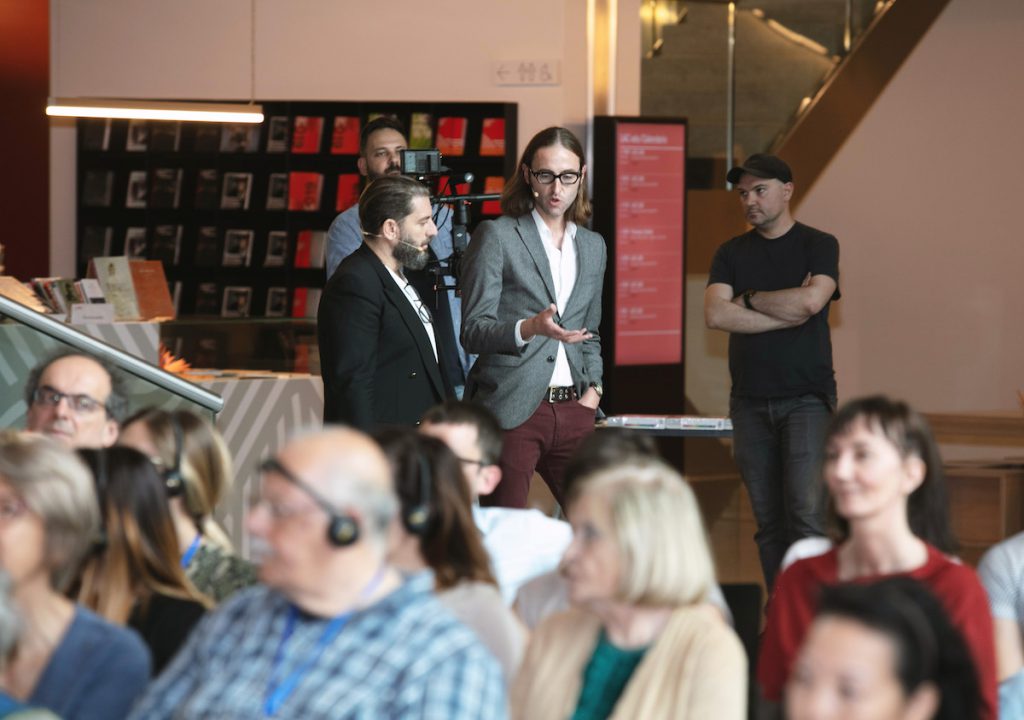
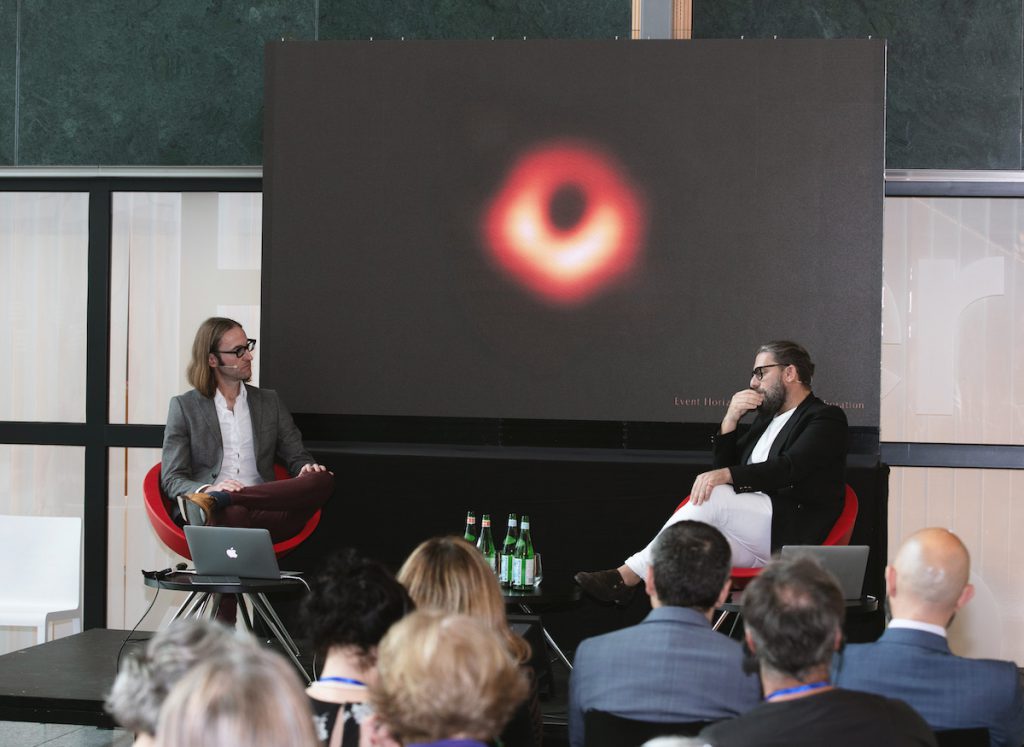
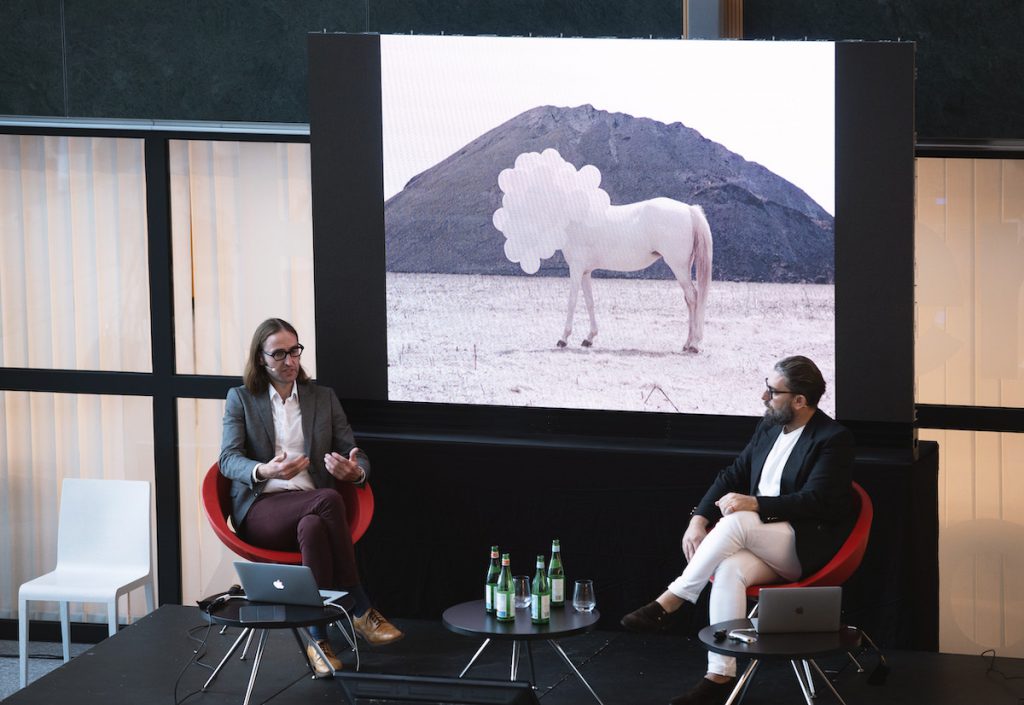
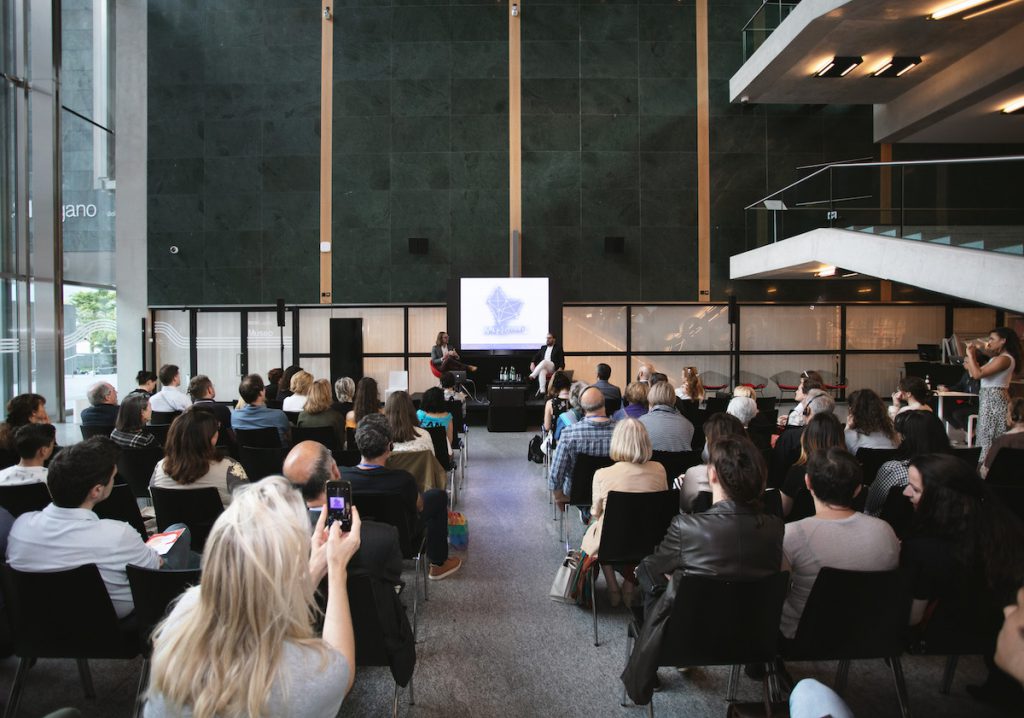
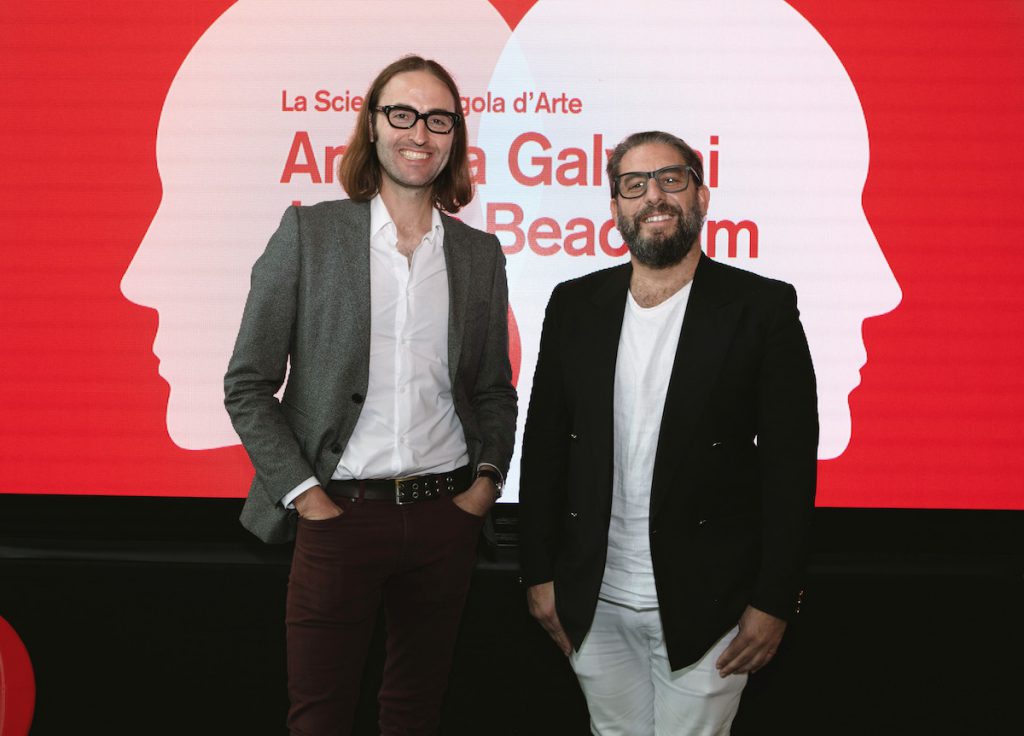
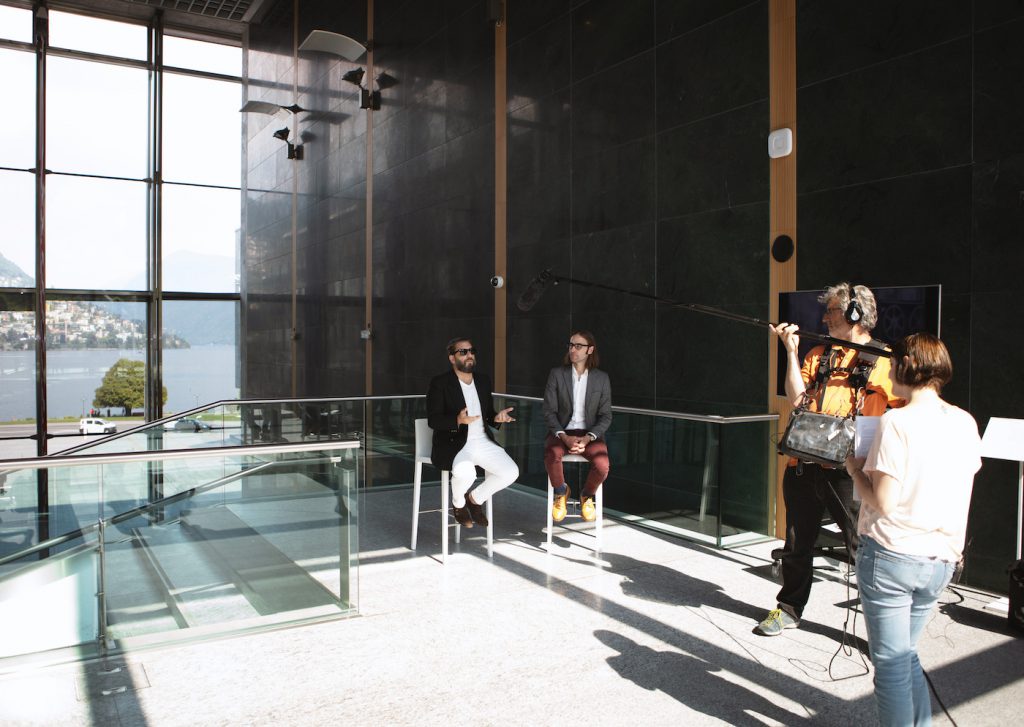
Our discussion was wild and wide-ranging, and I look forward to collaborating with Andrea in the future.
This also was another in a wonderful series of events with the IBSA Foundation, and I’ve very much enjoyed being their official “Friend of the Foundation” this year. More events are upcoming.
// Talk & discussion — Moscow — OFF Festival — 16 May 2019
— Physics on the cusp of a revolution —
— Art, design, and science at CERN —
I was invited, along with artist and designer Laura Couto Rosado, to appear at OFF Festival Moscow, in May of 2019.
https://twitter.com/jbbeacham/status/1129012643350683648
I spoke about the biggest open questions of physics, the universe, the possibility of a multiverse, and what it will take for us to answer these questions in the future, and Laura spoke about her experience as an artist in residence at CERN and her work since then, and we concluded with a discussion of the broader implications of an art-science collaboration in a place like CERN and how one of the most important lessons of such an organization is functioning as a working example of how to organize people around achieving important goals that are larger than any individual person and that require collective, collaborative approaches to doing so. Climate change won’t be solved by a few of us taking fewer airplane trips. It requires a global effort.
// Talk — Amsterdam — The Next Web — 10 May 2019
— What’s Outside the Universe? —
I had been invited to speak at The Next Web Conference 2019 and gave a variation on my talk about “What’s Outside the Universe?” to a packed house on the main stage and streamed live on the conference site.
The TNW crowd was hyper-curious and filled with questions afterward, so much so that I nearly missed my flight. The TNW people also put together an excellent video of the talk, here.
// Talk — Bologna, Italy — April 2019
— Decrypting the Universe —
I was humbled to be able to give a new variation on my talk, “Decrypting the Universe”, at MAST in Bologna on 15 April 2019.
This one is unique among the talks I give, since it’s a combination personal monologue and physics lecture, about desire, creativity, and what it means to be a curious, flawed human being exploring the edges of knowledge in an enormous, nearly empty universe. It’s about science, art, inquiry, collaboration, and perception. I was very pleased with the response — the performance lasted nearly two hours and no one moved — and I look forward to giving it elsewhere in the future.
// Documentary film & Q&A appearance — Copenhagen — CPH:DOX — March 2019
— Chasing Einstein —
For several years I participated in a documentary film by Steve Brown and Timothy Wheeler, about dark matter and the joy and occasional heartache of scientific exploration, all set in a broader social and philosophical context. The film, called Chasing Einstein, had its world premiere at the CPH:DOX festival in Copenhagen on 23 March 2019. It was great to be at the premiere to participate in the Q&As for a couple of screenings.
It’s also screening at several festivals around the world now and later this year, including the Cleveland International Film Festival in April 2019.
// Article in Gulf Coast Magazine — Winter/Spring 2019
— Five poets and a particle physicist: discussing poetics as a mode of inquiry —
In the summer of 2018, poet Martin Rock assembled five poets — Jaswinder Bolina, Kimiko Hahn, Kathryn Nuernberger, and Tess Taylor, in addition to Rock — who have engaged in substantive ways with science and its methods and implications in their work and conducted a roundtable via email, with me as the particle physicist in the mix. The discussion was fascinating and wide-ranging, and Martin turned it into a very nice piece for the Winter/Spring 2019 issue (31.1) of Gulf Coast Magazine. I highly encourage you to visit your local independent bookstore and pick up a hard copy.
// Talk — Barcelona — IAM Weekend — March 2019
— Outside the Universe —
I spoke at IAM Weekend Barcelona on 22 March 2019, and gave a variation on my talk about what’s outside the universe.
This version was a bit different, since the theme of this year’s IAM Weekend was “The Quantumness of Archipelagos”, and the questions they were asking were about technology, communication, the internet(s), and the future. I took the opportunity, as the opening headliner, to set the stage from a particle physicist’s perspective and examine in some detail what quantum field theory implies about the fundamental nature of physical reality and how this can and cannot be useful in investigating new ways to decolonize technology.
It was an excellent event, and my only regret was that I had to jet away so quickly after my talk. I look forward to engaging with the IAM community in the future.
// Talk — New York, NY — National Museum of Mathematics — February 2019
— What’s Outside the Universe? —
At the National Museum of Mathematics (MoMath), on 28 February 2019, I gave a variation on my, “What’s outside the universe?” talk, first given at Pause Fest in Melbourne, but with expanded descriptions and a discussion of why our physical universe seems to follow mathematics very precisely — but only for a few, selected mathematical objects.
An excellent time with great questions afterward! I look forward to returning and giving a full talk on the mathematics of particle physics.
// Talk & panel — Melbourne, Australia — Pause Fest — February 2019
— What’s Outside the Universe? —
I was one of the headliners at Pause Fest in Melbourne, Australia, in February of 2019, where I gave a talk called, “What’s outside the universe?”, exploring the evident strangeness of our universe, the Higgs boson, and the prospect of whether we might live in a multi-verse — and whether that question even has meaning.
I also appeared on a panel about how we might organize a society once humans have arrived on Mars. I made it clear that any discussion of setting up a new society on a new planet would be incomplete without the explicit recognition that one of the most important goals would be to avoid the implementation of capitalism on the new planet, since capitalism has led directly to the current global situation where the earth will likely be uninhabitable due to the voracious human usage of carbon resources.
// Talk & panel — Tokyo, Japan — November 2018
— Decrypting the Universe —
I gave a very unique talk, one I’d never given before, at the Muographers 2018 conference in Tokyo, Japan, on 30 November 2018, at the Istituto Italiano di Cultura. It was also titled, “Decrypting the Universe”, but it was unlike any other iterations of that title I’ve used previously, since it was about physics, curiosity, desire, the destruction of the ego, art, inquiry, and how physicists extract complex patterns from the universe, from utilizing cosmic ray muons to see inside volcanos and pyramids to the research we do at the LHC, recreating the conditions of the universe as they were a fraction of a second after the Big Bang, fourteen billion years ago, to try to understand what the universe is trying to tell us with its invisible messengers.
I also moderated a panel about the interface between the arts and the sciences. It was wonderful meeting so many forward-thinking muography researchers and it was great to give this talk. I look forward to giving it elsewhere in the future.
// Talk — Zürich, Switzerland — November 2018
— A Big Bang Machine on the Moon —
I’d been invited to give a talk at focusTerra, a wonderful earth science museum at ETH Zürich, in Zürich, Switzerland, as part of a series of talks about the Solar System. So, naturally, I chose to talk about building an enormous particle collider around the circumference of a great circle of the Moon.
Thanks very much to the focusTerra staff for such a great venue and the wonderful hospitality!
// Conversation — MASI Lugano — Lugano, Switzerland — October 2018
By invitation of Tobia Bezzola, director of the stupendous MASI, in Lugano, Switzerland — and through the support and consideration of the IBSA Foundation for scientific research — I was honored to collaborate again with photographer Thomas Struth. We had a public conversation about science and art in the dire contemporary social/political moment, particle physics, constructed landscapes, the invisible, and decay.
A gorgeous building, a very good crowd, and excellent hosts. Thomas and I always seem to encounter even more ideas and concepts to explore at the end of our conversations than we had when we began. I can’t wait to visit Lugano again.
// Panel — Martigny, Valais, Switzerland — Foire du Valais, Journée de la Culture — October 2018
Along with Mónica Bello, head of the Arts at CERN program, and Laura Couto Rosado, the artist and designer for whom I was the scientific partner of her residence at CERN, I appeared on a panel titled “Arts at CERN: comment faire dialoguer art et science ?” as part of the Journée de la Culture at the Foire du Valais, in Martigny, Switzerland.
We each gave a short presentation and then dived a bit deeper into the interaction between the arts and the sciences during the moderated discussion. It was a curious, inquisitive crowd and we had a lot of great questions during the Q&A and afterward. A big thanks to the organizers for inviting us!
// Panel, Talk — Split, Croatia — LHC Days — September 2018
— A Big Bang Machine on the Moon —
I had the great fortune to begin a new collaboration with colleagues in the CMS, ALICE, LIGO/VIRGO, and Muographix collaborations / organizations, called the Origin Network. In connection with the LHC Days conference in Split, Croatia, I appeared on a panel about art and science and then gave my “Big Bang Machine on the Moon” public talk, as well.
It was a very fun talk, with some good questions from locals, in an excellent venue, in the magical old town of Split. I’m looking forward to future Origin Network events.
// Talk — Durham, North Carolina — Museum of Life & Science— June 2018
— A Big Bang Machine on the Moon —
I had the great luck to be able to spend an evening at the Museum of Life & Science in Durham, North Carolina and to drop the particle-collider-around-the-moon idea on the excellent community of science enthusiasts, innovators, student thinkers, and rationalists in the area!
I had a great time chatting with everyone, and huge thanks to the museum staff for hosting me. And if you're a fan of space exploration, I highly encourage you to visit the Museum. They have extremely important pieces of space history there!
// Keynote address — Geneva, Switzerland — Ecsite — June 2018
— Decrypting the Universe —
I was honored to have been asked to give the main keynote address at the Ecsite 2018 annual conference in Geneva, Switzerland. It was a unique talk for me, very unlike other talks I've given, since the audience was very unique, being composed of science communication and museum professionals, the kind of people who shaped my perceptions of science and inquiry as a child and cultivated my curiosity. I had been asked to address not just science and particle physics but my experiences and initiatives investigating the similarities between scientific and artistic inquiry, including my prior training as a filmmaker and, for example, the Ex/Noise/CERN project. I touched upon some of the key issues about the relationship between art and science in the contemporary socio-political moment, as well. The response from the attendees was positive, and I had a large number of wonderful conversations over the few days of the conference. Extreme thanks to the whole Ecsite team for providing such a great platform. The full video is below.
// Talk — Brain Bar Budapest — June 2018
— Why is real science sexier than pseudoscience? —
I was invited to return to Brain Bar Budapest for a second year and took the opportunity to do something a bit different. The organizers had requested I address the topic, "Why science is sexier than pseudoscience", so instead of a traditional science talk I did a kind of dramatic re-telling of a conversation I once had in a bar in Santa Cruz with a guy and his girlfriend about science, evidence, belief, particle physics, dark matter, ghosts, gluten, and honest inquiry. The video is here.
// Talk — Budapest — KPMG — May 2018
— A Big Bang Machine on the Moon —
While in Budapest, prior to the main event, I was also invited to bring the Brain Bar atmosphere to the employees of the local KPMG office for a special talk on site, so naturally I hit them with A Big Bang Machine on the Moon, described in detail a few entries below here. It was a perfect fit for this audience of young, ambitious, innovation-minding professionals who are *not* physicists but are well-versed in thinking about what's possible and seemingly impossible with respect to financing. Some of the innovation and technology required to build a particle collider on the moon doesn't necessarily even exist yet -- which is a big opportunity. Thanks to the KPMG team for inviting and hosting me!
// Talk — San Francisco— March 2018
// Talk — London — March 2018
// Talk — Athens — April 2018
— A Big Bang Machine on the Moon —
What would we learn if we built a particle collider experiment -- something like the Large Hadron Collider, but much bigger -- around the circumference of a great circle of the Moon? Answer: A huge amount about some of the most burning open questions of physics concerning the Higgs boson, dark matter, supersymmetry, the Big Bang, and the audacious idea that we may live in a multiverse. Why haven't we done this yet? Answer: Because it's the Moon, and until the last few years, it's been an insane, impossible thought-experiment-only. So how impossible might it be in the not-too-distant future? Answer: Perhaps not as impossible as you think.
I explored the concept of building a particle collider on the Moon in a talk titled, "A Big Bang Machine on the Moon", at the Exploratorium in San Francisco on 22 March 2018...
...at the Royal Institution in London on 27 March 2018...
...and as the closing keynote address for the wonderful Athens Science Festival on 29 April 2018:
The possibility is currently quite remote, but there are many intriguing advances and threads going in the direction of building a base on the Moon, improving space transit and transport, and after the next-to-next generation of collider (after, e.g., the FCC) we'll need to go very big to really and nearly definitively answer some of our open questions. Could the future of physics research be Moon-based? It's an intriguing prospect, but we'll need some killer innovation to make it happen.
And a special thanks to the fantastic teams at the Exploratorium and the Royal Institution! The Exploratorium is a legendary space for inspiring upcoming scientists and thinkers to explore the world around them, and the Royal Institution needs no introduction or explanation at all. It was indeed a rare honor to speak in the same auditorium where Faraday lectured on electromagnetism in the 1820s/30s. The RI has hosted so many transformative scientists like Dorothy Hodgkin, Lord Rayleigh, the Braggs, and Kathleen Lonsdale over the years, and it was humbling to follow in their footsteps.
// Panel, Talk — SXSW — Austin, Texas — March 2018
I appeared on a panel at South by Southwest (SXSW) in Austin, Texas, in March of 2018, titled, "Decrypting the Universe: Science and Art at CERN", about the experience of being the scientific partner of artist and designer Laura Couto Rosado, one of the artists in residence at CERN in 2017, as part of the Arts at CERN program. The panel was organized by Cécile Vulliemin (who also appeared) of swissnex Boston. While we did talk briefly about some of Laura's particular work resulting from our partnership, the panel was about larger issues, ranging from the nature of CERN research, the implications of the existence of such a scientific endeavor (and the existence of a very welcoming and open arts program therein) in society, the peculiar nature of an arts/science collaboration in this context, whether the currently prevalent socio-political systems are suffocating society, and what art and science can say or do about it. It was a great event filled with fascinating people, questions, and conversations afterward.
// Talk — Mumbai, India — Nehru Science Center — December 2017
I had the wonderful honor of speaking at the Nehru Science Centre in Mumbai, India, on 14 December 2017, about "Exploring the dark side of the universe with the Large Hadron Collider at CERN", focusing on why we know dark matter exists, how we look for it, and why it's proving so challenging to find. Thanks very much to the excellent Nehru Centre staff and the great audience and their probing questions.
// Panel — St. Louis, Missouri — St. Louis Art Museum — November 2017
On 5 November 2017 I joined Thomas Struth, photographer; Eric Lutz, curator of photography at the St. Louis Art Museum; and Talia Dan-Cohen, Assistant Professor, Sociocultural Anthropology, Washington University in St. Louis for a cross-disciplinary panel discussion at the St. Louis Art Museum, in conjunction with a major exhibition -- titled "Thomas Struth: Nature & Politics" -- of Struth's photographs of the spaces and apparatuses humanity uses to explore scientific frontiers, and what the social and political costs of such advancement may be. As engrossing as it was, and as much as I learned from talking with Struth, Lutz, and Dan-Cohen, I feel we barely scratched the surface.
// Panel — New York City — Gizmodo Presents — October 2017
Gizmodo Presents: Dark Matter! On 23 October 2017 Gizmodo hosted a panel about dark matter at their studios in New York, featuring me and two of my colleagues, Elena Aprile (founder of the XENON Dark Matter Project and professor at Columbia) and Priya Natarajan (eminent astrophysicist at Yale), moderated by Ryan F. Mandelbaum, science writer at Gizmodo, and live-streamed via social media. The event was held in conjunction with Dark Matter Day, and, even though we went much longer than we'd planned, it still seemed too short. Tons of great questions. We'd probably need a ten-part series to cover all the bases. Thanks to our fantastic Gizmodo hosts!
// Talk — Manchester, UK — BBC Blue Room — September 2017
I was invited by producer Ahmed Razek to speak at BBC MediaCityUK (at the BBC Blue Room), in Manchester, on 25 September 2017, about artificial intelligence and machine learning at CERN, with a talk called, "Patterns in the fuzz: Big data, machine learning & artificial intelligence at the Large Hadron Collider at CERN". This is an acutely fascinating topic -- especially in the context of big, open media like that at the BBC vs. big, open science like that at CERN -- and we could have talked for hours. It was great to bounce around ideas with other data scientists like Magda Piatkowska and R&D people like Rosie Campbell.
// Talk, Debate, Video — Budapest, Hungary — Brain Bar Budapest — June 2017
I was invited to Brain Bar Budapest, which took place in June of 2017, and where I gave a talk titled, "Will We Ever Travel Through Time?". I also had a public debate with Bishop István Bogárdi Szabó, of the Reformed Church in Hungary, about the roles of science and theistic belief systems in modern society. It was a fantastic event filled with insatiably curious people and consistently insightful conversations. The organizers also knew how to properly inspire, since I'd not given a talk about time travel before, and it was a welcome challenge to fit humanity's fascination with time travel into a broader discussion about the physics of time and boundary-pushing research, both now, like that we do at the LHC, and in the future.
// Radio show — May 2017
On 15 May 2017 I was a guest on BLACKOUT, Samantha Scarlette's show on Idobi Radio, where we talked about black holes, Higgs physics, antimatter, and speculated as to how some of the wild conspiracy theories about CERN arise. Samantha and Eddie were great hosts, eager to know more about the physics and about sorting fact from fiction at the LHC. Spoiler: The real research we do here at CERN is *far* more interesting than any of the conspiracy theories.
// March, Talk — Geneva, Switzerland — March for Science, Geneva — April 2017
A small group of grassroots organizers here in Geneva, Switzerland -- encompassing both scientists and non-specialist members of the local community -- held the March for Science, Geneva, on 22 April 2017, and I was honored to have been a member of the organizing committee. I was consistently impressed with our team, since we managed to arrange the march in our spare time, without a hierarchical organizing structure, and to successfully meet our two main goals: 1) To march in solidarity with the hundreds of marches around the world that day to affirm that robust funding of scientific research is an essential component of a healthy, open, free society and 2) to hold up the Geneva region and Switzerland in general as shining examples of strong support of open, inclusive science for the public good. We also had more than twice as many attendees as we'd expected, including prominent scientists from around the region.
Our Geneva march was, as far as we know, the only one in Switzerland and was covered extensively in the press, including images from our march that appeared in news stories around the world.
I also had the honor of giving a speech on behalf of the organizing committee at the pre-march rally. The text and a video are here.
Our March For Science in Geneva, Switzerland! #ScienceMarchGVA #MarchForScience #ScienceMarch #Geneva pic.twitter.com/vIhCeZzLk0
— Science March Geneva (@ScienceMarchGVA) April 22, 2017
// Radio — April 2017
I was very pleased to join Heather Wade for Midnight in the Desert, a live late night talk radio show (and the successor to the venerable Art Bell Show) on the rather appropriately titled Dark Matter Digital Network, on 17 April 2017. It looks like one needs a subscription to listen online, but we talked about a large range of topics related to the LHC and CERN, sorting science fact from science fiction in boundary-pushing research.
// Podcast — April 2017
I talked with Kishore Hari for the Inquiring Minds podcast, hosted by Mother Jones, about what's next for high-energy particle physics and why the Higgs boson discovery was just the beginning, in April of 2017.
// Talk, Panel — Trondheim, Norway — Technoport — March 2017
I was at Technoport 2017, in Trondheim, Norway, in March of 2017, where I gave a presentation and appeared on a panel discussion titled, "Destination Dystopia?"
// Talk — New York City — American Museum of Natural History — February 2017
I gave a presentation at the American Museum of Natural History, in New York, on 6 February 2017, called, "Gravitons, Exotic Higgs Bosons, or Nothing at All: The Large Hadron Collider’s First Year at 13 TeV", as part of their Frontiers Lectures series.
// Talk — TED.com — December 2016
My TEDxBerlin talk, "How we explore unanswered questions in physics", was featured on TED.com on 22 December 2016.
I've been honored and humbled by the great public response to the work of my colleagues and I, and for such excellent enthusiasm for what big, boundary-pushing, open, multicultural, inclusive science can do on the global stage. Stay curious.
// Article — Scientific American — November 2016
I wrote an article for Scientific American blogs called, "The Higgs Boson versus Donald Trump", on 14 November 2016, about the fundamental incompatibility of bigotry and authoritarianism with the greatest achievements of international, multicultural, big science for humanity.
// Talk — London — Institute of Physics — November 2016
I spoke at the Institute of Physics, in London, on 2 November 2016, with a talk called, "Gravitons, Exotic Higgs Bosons, or Nothing at All: The Large Hadron Collider's First Year at 13 TeV".
// Talk, Talk — TEDxBerlin and TEDxArendal — September 2016
I gave a talk titled, "The Large Hadron Collider and the beginning of physics", at TEDxBerlin on 4 September 2016 and at TEDxArendal, in Norway, on 10 September 2016. It's about my personal experience with the X750 diphoton resonance search in 2015 and 2016 and how the huge attention paid toward it fits into the larger context of what we do as physicists at CERN and scientists in general.
// Talk, Musical performance — Gallenukirchen, Austria — August 2016
I was invited to appear at Klangfestival 2016 at Klangfolger, Gallneukirchen, Austria, 19 August 2016, where I gave a talk called, "Exploring the Dark Side of the Universe with the Big Bang Machine", and where I may or may not have performed some of my private sonifications of ATLAS LHC collision data with the improv noise band The Spacefollowers, as well.
// Radio — NPR’s Science Friday — August 2016
I was on NPR's Science Friday on 12 August 2016 discussing the results from the LHC's first year at 13 TeV (including the diphoton bump) and the IceCube sterile neutrino exclusion with neutrino hunter extraordinaire Janet Conrad.
// Media features — December 2015 through 2016
On 15 December 2015, ATLAS and CMS held a big seminar here at CERN where we reported on our first-year-at-13-TeV results. Both experiments saw a slight excess in the diphoton mass spectrum at approximately the same place, around 750 GeV. This excess was not very statistically significant. But hundreds of theory papers were written about it quite rapidly.
I chatted about it with some news outlets:
// Talk — London — Science Museum Lates — May 2016
I gave a talk about the maybe-new-particle cliffhanger, this X750 diphoton excess, at the Science Museum in London, as part of their Lates program, on 25 May 2016, called "A Revolutionary New Particle at the Big Bang Machine?".
I wrote an explainer:
And then, as modest, 2σ excesses have been known to do, the little diphoton bumplet turned into a smooth line after we took five times more data, as we reported at the ICHEP conference in Chicago in August, 2016. It was an exciting time, and many people seemed to be disappointed in the result, but this was actually a stellar triumph for science itself. Data speak for themselves. And this is just the beginning of the LHC's quest for new particles at 13 TeV. I wrote another explainer about it.
I discussed the diphoton search in the New York Times...
...and participated in a BBC Horizon special about the entire process called Inside CERN.
// Podcast — June 2016
I chatted with DigitalCulture.LA's Brittney Gallagher about "What's After the Higgs Boson?" for her podcast, in June of 2016.
// Twitter chat — May 2016
I participated in a Twitter chat with CNN Tech, about "The secret to making a scientific discovery", on 25 May 2016.
// Video — 2016
As part of Symmetry Magazine's "Ask Symmetry" series I answered the question "If atoms are mostly empty space, then why does anything feel solid?".
// Feature article — WIRED — January 2015
WIRED's Joshua Batson wrote an article, published 23 January 2015, called, "How Three Guys With $10K and Decades-Old Data Almost Found the Higgs Boson First", about our 2009 project looking for ways the Higgs boson could have been hiding in LEP data.

// Talk — New York, NY — TEDxFultonStreet — 2014
I gave a talk about searching for low-mass hidden gauge bosons at fixed target facilities like Jefferson Lab, called "Dark Photons at Noon", at a TEDx event, TEDxFultonStreet, in lower Manhattan in June of 2014. The video is here, and here.


